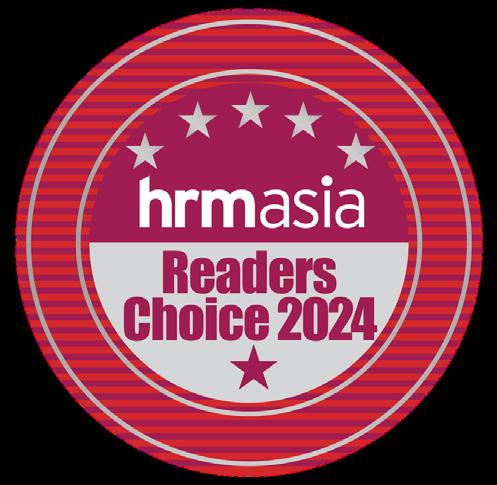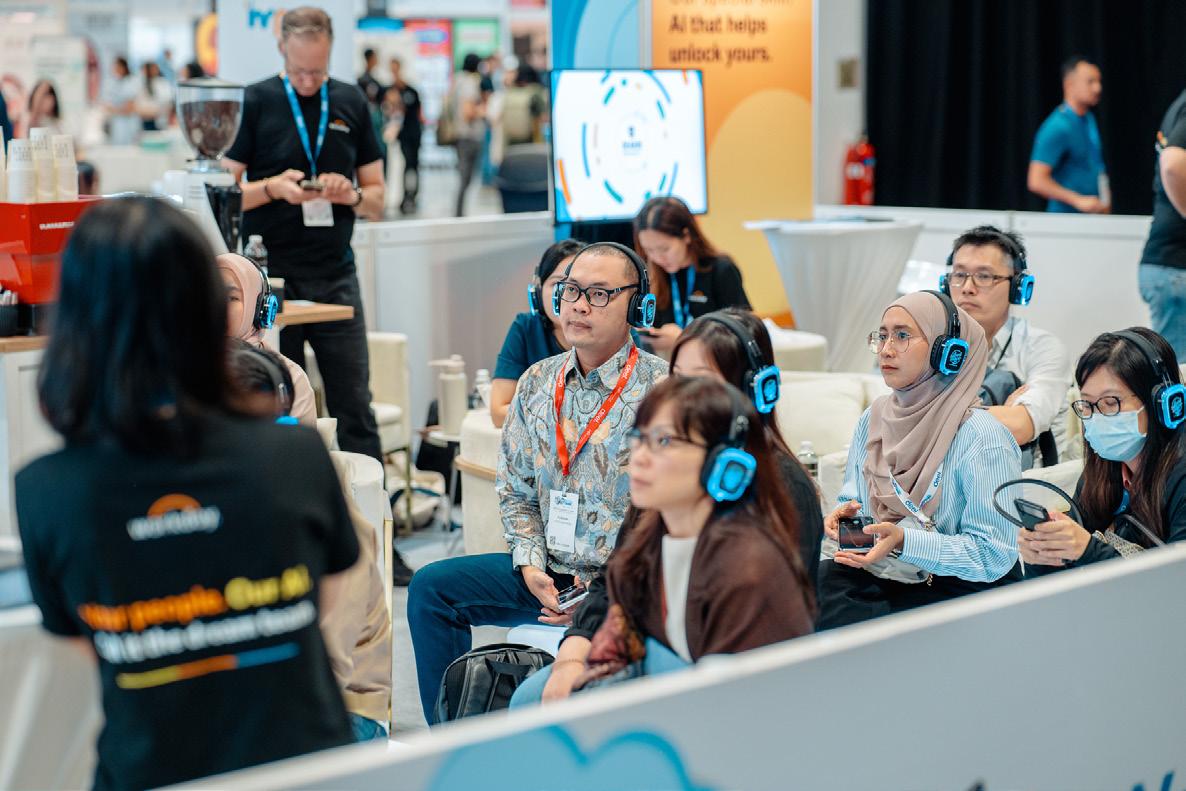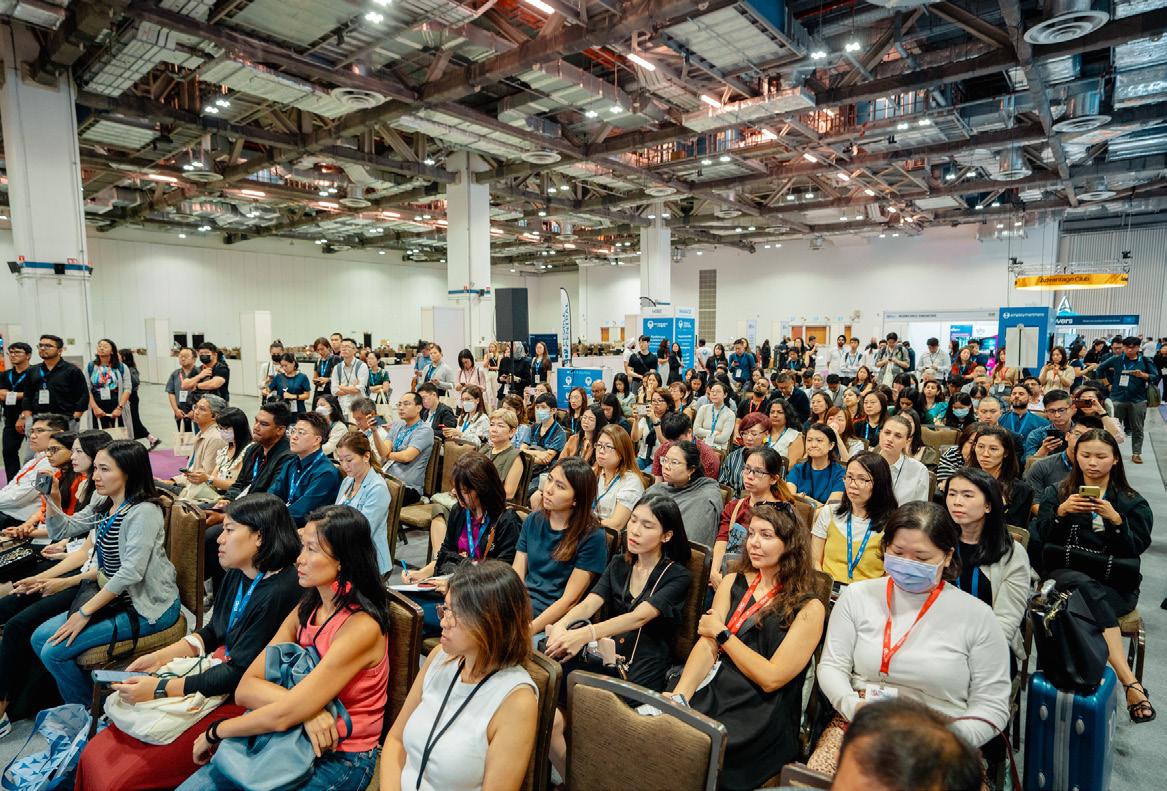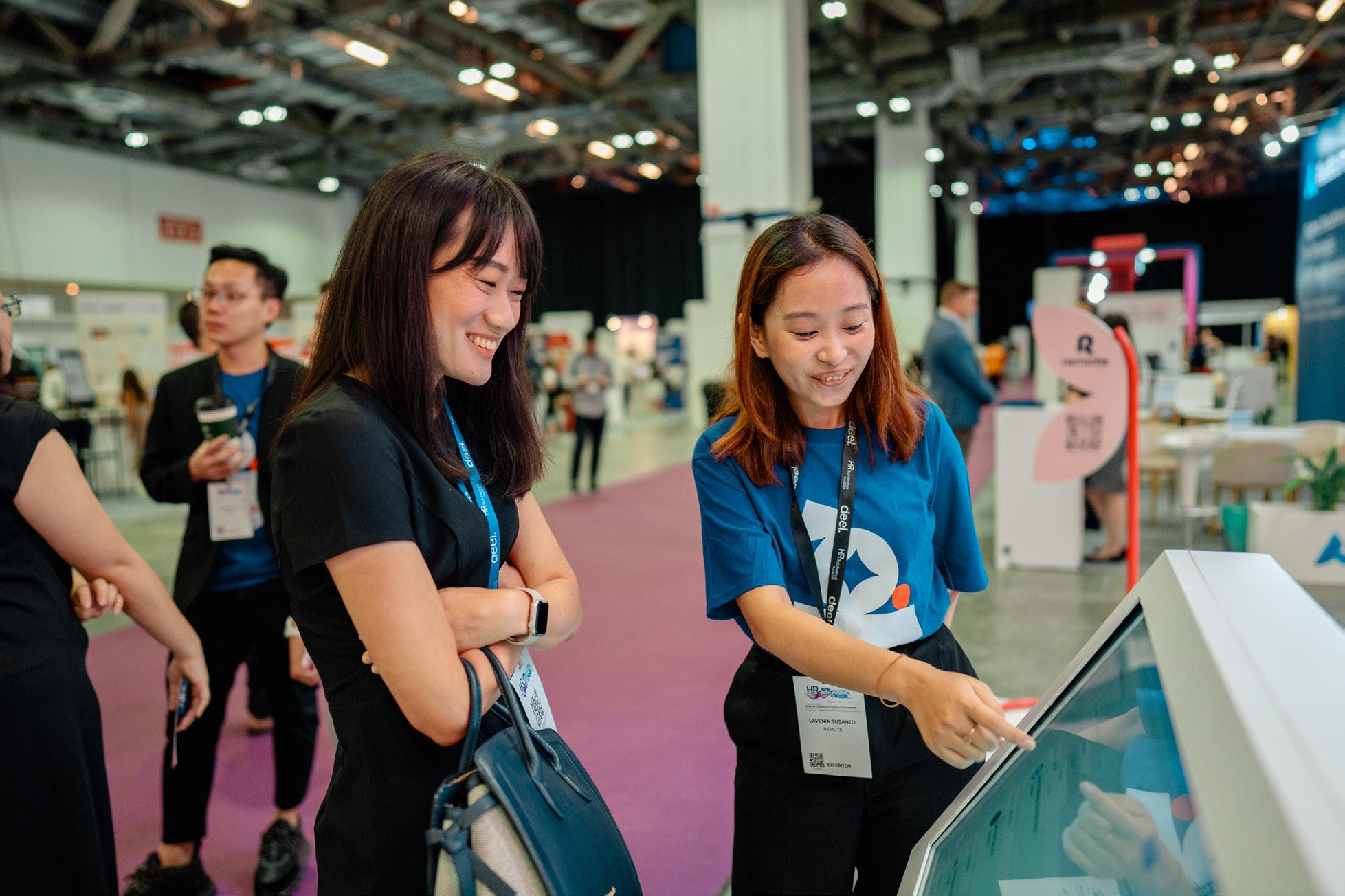




Each team member is unique and in order to successfully collaborate, you need to understand yourself and your colleagues
Effective team collaboration means: Understanding individual strengths
Recognizing thought processes
Identifying reactions and motivations
But it all starts with asking the right questions These questions you'll find in our patented Management Drives survey
Six colors. One matrix.
That’s all you need to visualize the driving forces of a person, a team or an organization
It's not about putting people in categories or boxes Rather, people should be completely themselves, feel understood and understand others, that’s the foundation to effectively collaborate
Imagine if everyone understood themselves, the people around them and what we could do together!
That's what we mean by turning potential into performance
www.managementdrives.com


HEAD OF CONTENT DEVELOPMENT
Shawn Liew
JOURNALIST
Josephine Tan
Champa Ha
SALES DIRECTOR
Sharon Yang
SENIOR ACCOUNT MANAGER
Edwin Lim
MARKETING MANAGER
Sarah Ang
MANAGING DIRECTOR AND PUBLISHER
Catherine Wong
GRAPHIC DESIGNER
Adrian Taylor adrian.taylor@mac.com
Dear HRM Magazine Asia readers,
The modern workplace is no longer a one -size-fits-all environment. It is a vibrant tapestry woven from diverse cultures, backgrounds, and perspectives. This rich mix of talent fuels innovation, fosters creativity, and ultimately drives business success.
But how can organisations truly unlock the full potential of this human kaleidoscope?
The answer lies in fostering a truly inclusive environment – one where diversity, equity, and inclusion (DE&I) are more than just buzzwords. They become strategic cornerstones for building a workplace where every individual feels valued, heard, and empowered to thrive.
In this issue, we have Roman Matla, Director Asia-Pacific DE&I Lead for Google, to share the story of the tech giant’s DE&I journey in the Asia-Pacific region. Over the past decade, Google has made significant strides in promoting diversity and inclusion, from increasing representation in tech to creating equitable systems.
One of the key takeaways Matla highlighted was the importance of transparency and accountability and added that tracking progress and identifying areas for improvement allow organisations to ensure their DE&I initiatives drive meaningful change. As Matla aptly states, “DE&I is an ongoing
journey, not a destination.” This sentiment underscores the continuous effort required for sustained progress.
As we navigate the ever-evolving terrain of HR practices, it is essential to stay informed and connected. As such, we are pleased to announce the return of our annual CHRO Series, which returns to South-East Asia in 2024. This leading in-person platform brings together key HR and business leaders to share insights and ideas on evolving HR leadership, people, talent strategies, and more.
This year’s series will kick off in Ho Chi Minh City on June 13, with subsequent events in Jakarta, Kuala Lumpur, and Singapore. These discussions are particularly timely, given recent developments such as Malaysia’s National Human Resource Policy Framework’s launch and Singapore’s flexible work arrangement guidelines.
Join us on this journey as we navigate the ever-changing landscape of HR and champion the principles of DE&I that are essential for sharing a more equitable and prosperous future.
 JOSEPHINE TAN, Journalist, HRM Asia
JOSEPHINE TAN, Journalist, HRM Asia
PUBLISHED BY
HRM Asia Pte Ltd 109 North Bridge Road, #05-21 Singapore, 179097 Email: info@hrmasia.com.sg
©HRM Asia Pte Ltd, 2023. All rights reserved. Republication permitted only with the approval of the Publisher.
CONTACT US:
Read something you like? Or something you don’t? Perhaps there’s some insight we haven’t considered? Have your say on HRM Asia’s news, features, and contributions by emailing: info@hrmasia.com.sg
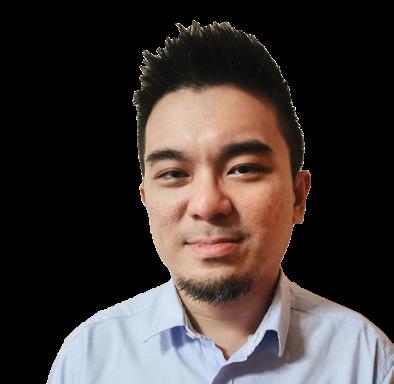

Shawn Liew Head of Content Development shawn.liew@hrmasia.com.sg




Champa Ha Journalist champa@hrmasia.com.sg.

8
BEYOND THE ALGORITHM: GOOGLE’S HUMAN-CENTRIC APPROACH TO PIONEERING WORKPLACE INCLUSION
Roman Matla, Director of Asia-Pacific Diversity, Equity and Inclusion (DE&I) at Google, leads the charge in fostering a workplace where every voice is celebrated, with a focus on transparency, datadriven approaches, and long-term commitment.
10 USING AI IN HCM: SIX THINGS TO LOOK OUT FOR Executives must thoughtfully integrate AI into human capital management (HCM). Key considerations include intention, definition, guardrails, performance, thoughtfulness, and partners, says David Lloyd, Chief Data Officer of Dayforce.
12 NAVIGATING THE EVOLVING JOB MARKET – THE IMPACT OF AI ON TRADITIONAL CAREER TRAJECTORIES
Loh Pui Wah, Director at Nanyang Technological University (NTU), notes how AI reshapes careers, emphasising adaptability and resilience.
10

14 CHRO SERIES 2024: MEASURING THE PULSE OF WORK IN SOUTH-EAST ASIA
Organised by HRM Asia, CHRO Series 2024 returns to SouthEast Asia, featuring insightful discussions on HR leaders, talent management, and workplace trends in Vietnam, Malaysia, and Singapore.
16 NATIONAL UNIVERSITY OF SINGAPORE TRANSFORMS HR WITH TECH TO EMPOWER EMPLOYEES
Anna Ng, HR Tech Lead at the National University of Singapore (NUS), transformed the university’s HR landscape with a modern cloud-based HR system, earning the Best Use of Technology award at HR Fest Awards 2024.
18 FOSTERING A CULTURE OF INCLUSIVITY AND EXCELLENCE IN HUMAN RESOURCES
UOB Thailand’s win at HR Fest Awards 2024 for Employer of Choice reflects its commitment to a strong, inclusive work environment, fostering employee morale, retention, and business success through cultural alignment and development programmes.
info@hrmasia.com.sg
20 GOING ABOVE AND BEYOND: THE DNA OF A MODERN WORKDAY LEADER
Paul Chong, CEO of Certis, named Best C-Suite Leader of The Year at HR Fest Awards 2024, emphasises the importance of adaptability, innovation, and people-centric leadership, and reimagines HR as a strategic driver of business transformation.
22 KEEPING AGILE AND CONTINUOUS COMMUNICATION KEY TO HR LEADERSHIP
Sasiwimol Arayawattanapong, Country Head of Human Resources at UOB Thailand, was named HR Leader of the Year at HR Fest Awards 2024, recognising her commitment to employee development, retention, and wellbeing.
24 HOW LARGE ORGANISATIONS CAN ELEVATE THEIR HUMAN DEVELOPMENT STRATEGIES
City Holdings won the Best ASEAN Human Development (Large Companies) award for its commitment to employee growth, high-performance culture, and human-centric approach, despite challenges in the region.
25 TAILORING SOLUTIONS TO DIFFERENT ORGANISATIONS FOR EFFECTIVE HUMAN DEVELOPMENT
Similie won the Best ASEAN Human Development (Small & Medium Companies) award, recognising its people-centric approach, investment in employee growth, and inclusive development of employees and stakeholders across ASEAN countries.
26 CARE, INCLUSION AND EMPOWERMENT: HOW SINGLAND IS CREATING A THRIVING WORK ENVIRONMENT
Singapore Land Group has been awarded Best Workplace Culture & Engagement (below 500 employees) at HR Fest Awards 2024 for its commitment to fostering a nurturing work environment, employee wellbeing, diversity, and empowerment.
28 EMPLOYEE WELLBEING TAKES CENTRE STAGE AT VENA ENERGY
Vena Energy clinched the Best Workplace Culture & Engagement (above 500 employees) award at HR Fest Awards 2024, thanks to its holistic welfare and engagement programme, V-Evolution, which prioritises nurturing every aspect of employees’ lives.

30 AGILITY, TECHNOLOGY AND HUMANITY: THE SUCCESS FACTORS OF A GREAT HR GROUP
Singapore Land Group won the HR Team of The Year award at HR Fest Awards 2024 for its efforts in fostering a positive work culture, employee growth, and effective HR strategies.
Yean Cheong, Executive Director of SGTech, champions DE&I in the workplace, promoting innovation and attracting top talent through skill-based hiring and lifelong learning initiatives.
Somnuek Ngamtrakulchol, HR Director at ADM, highlights the importance of diversity, equity, inclusion, and belonging (DEI&B) in Asia’s richly diverse workforce, focusing on initiatives such as mentorship, cultural immersion, and early career engagement.
Leong Yangfa, Executive Director from Oogachaga, offers insights on enhancing DE&I processes for LGBTQIA+ employees, guiding HR teams towards improved practices.
TWO SOUTH KOREAN ORGANISATIONS, Samsung and SK Group, are under fire for implementing a six-day workweek for their executives, a move criticised for its potential negative impact on morale and adherence to outdated labour standards.
Executives at Samsung Group’s key affiliates, including Samsung Electronics, Samsung SDI, and Samsung SDS, are now required to work an additional day, either on Saturday or Sunday. SK Group has similarly reinstated biweekly Saturday meetings for top executives from its affiliates, a practice abandoned for 24 years since the adoption of the five-day workweek in 2000. These decisions from both organisations have raised questions about the direction of corporate culture and working conditions.
AUSTRALIA
EMPLOYEES IN AUSTRALIA can choose to double the annual leave that is entitled to them, but at half pay.
This is what a new plan supported by The Australian Council of Trade Unions, and the Australian Chamber of Commerce and Industry, plans to do, granting employees more leave for caregiving and personal mental health days. The decision has been championed as a solution for parents looking to counter the cost of daycare and other activities and employees who may need help and more days to manage their mental health issues.
HONG KONG
SCRAP THE MINIMUM WAGE IN HONG KONG? No way, said unionists, who are calling for a “reasonable and objective” discussion on the issue.
The Federation of Trade Unions said the statutory minimum wage, currently at HK$40 (US$5.11), is essential to protecting employees, with Kingsley Wong, FTU Chairman, stating that having a minimum wage in place is a common practice worldwide to act as a policy safety net, to ensure grassroots or the most disadvantaged local employees receive appropriate protection.
Wong has also reiterated calls for statutory minimum wage to be reviewed annually, instead of once every two years.
EMPLOYERS CANNOT REDUCE PAY for employees on flexible work arrangements if their productivity remains unaffected, Singapore’s Minister of State for Manpower Gan Siow Huang clarified.
This statement comes in response to concerns surrounding the interaction between the new flexible work arrangement guidelines and the progressive wage model. The guidelines, effective December 1, require employers to establish a process for managing employee requests for flexible work options.
Employers must provide a fair evaluation within two months and can only reject requests based on valid business reasons, with a written explanation provided to the employee.
CHINA
CHINESE PROVINCES AND AUTHORITIES are urging organisations to offer flexible job roles that would make it easier to balance work and childcare. These flexible job roles, dubbed, “Mama’s Posts”, are work roles specially created for mothers, with flexible working hours for candidates to make it easier for them to balance work and childcare, shared the agency. This comes as a boon to many parents, especially mothers, who stay out of the job market for more than three years until their children are eligible for daycare and would also require flexible working hours upon returning to the workforce.
MALAYSIA HAS A NEW POLICY FRAMEWORK revolving around human resources. The National Human Resources (HR) Policy Framework was launched on Labour Day by Malaysian Prime Minister Datuk Seri Anwar Ibrahim, and addresses key aspects of human resources within the country across all industries and sectors, including equitable compensation and job welfare.
The framework, which comprises three cores and 11 strategies, was developed after considering feedback from stakeholders and the public through engagement sessions, focus group discussions and online surveys, shared Steven Sim, Malaysia’s Human Resources Minister. The framework will address crucial issues related to workers, such as fair compensation, job welfare, labour union movements, job mismatches, and foreign labour.
SPAIN IS SET TO INCORPORATE RESEARCH and monitoring of work-related mental health into its national epidemiological surveillance system. According to Belén González, Director, Mental Health Commissioner, and the initiative’s coordinator, the programme aims to not only quantify the extent of psychological suffering related to work, but also provide official evidence of mental disorders directly resulting from occupational factors.
Currently, stress at work or burnout is not officially recognised in Spain as a possible mental disorder.
The information garnered from the study will be helpful for policymakers to assess which working conditions are affecting employees and which groups are most vulnerable to mental health problems related to work, as well as a better understanding of what is causing these issues in employees.
THE UK WILL SOON BE INTRODUCING an amendment to the Equality Act 2010 with the Worker Protection Act 2023, which will push employers to take a proactive duty on employers to prevent sexual harassment in the workplace.
Under the new amendment, employers will have the onus of taking reasonable steps to prevent workplace harassment of their employees through the duration of their employment as well as granting employment tribunals the power to uplift sexual harassment compensation by up to 25% should the employer be found to have not done its duty.
A THIRD OF EMPLOYEES IN THE UK have worked under a ‘toxic manager’ in the past five years, and over four in 10 (41%) employees have resigned due to their unhappiness with management. These are findings from the Workplace Training Report 2024, released by digital and management skills training provider Corndel, and showed how toxic leadership can have a significant impact on employees’ experiences at work, with nearly half of the employees (47%) sharing the importance of mental health support and empathy from their workplace.
Organisations, in turn, are acknowledging that toxic managers are an issue in their organisations, with nearly seven in 10 (69%) HR leaders admitting to the problem happening in their workplace.
DEPRESSION IN WORKING ADULTS in the US has been found to hit younger employees and female employees, according to new research from mental health services provider ComPsych and GuidanceResources.
Studying more than 80,000 depression cases from 2022-2023, the research showed that nearly four in 10 cases of depression in working adults were found in US employees aged 20-29, and 60% of these cases affected female employees across all age groups. Solutions suggested to resolve this include getting employers to invest strategically in resources for younger age groups and female employees.
WORKING MOTHERS IN CANADA are listing their priorities when it comes to work, and one of the considerations, amidst the rise of return to office mandates across many organisations, is whether they can achieve work-life balance the way they could during COVID-19.
More than two-thirds (68%) of working mothers are concerned about losing the flexibility they managed to cultivate at work in 2024, according to a new survey from Robert Half Canada, a recruitment agency.
The survey also found that more than half of the respondents who were also working mothers see no traction in their career progression, with a third (32%) sharing hopes of receiving a promotion to a new role at work.
WHILE MANY ORGANISATIONS are trying to understand and make accommodations for employees who are chronically ill, employees who are chronically ill believe that their employers are still missing the mark.
Katie Bach, Board Chair of PolyBio Research Foundation and Gretchen Gavett, Senior Editor at Harvard Business Review, wanted to understand more about chronic illness and how it affects their work life and their relationship with their employers and invited readers from Harvard Business Review in the US to share their perspectives on chronic illness in the workplace. What they found was that three-quarters of chronically ill employees were still working but had to make significant changes to do so, such as reducing working hours, and only 36% of employees who identified as having a chronic illness had agreed that their employers were understanding of their condition.
Google hosts the Global Journey to Disability Inclusion Summit, aiming to build inclusive and equitable businesses for all.

In the vibrant heart of Singapore, where the pulse of innovation echoes through the bustling streets, stands the Asia-Pacific headquarters of Google—a beacon of progress and diversity in the dynamic region. Here, amidst the gleaming skyscrapers that adorn the skyline, Roman Matla, the Director of Asia-Pacific Diversity, Equity and Inclusion, leads Google’s charge in fostering a workplace where every voice is not just heard but celebrated, and where every individual thrives.
Over the past decade, Google’s approach to diversity, equity, and inclusion (DE&I) in the Asia-Pacific region has undergone a remarkable evolution, reflecting a commitment to creating a workplace that mirrors the rich tapestry of cultures and identities across the region.
In an interview with HRM Magazine Asia, Matla recalled, “Our early DE&I initiatives centred on increasing representation in tech, particularly focusing on women and other underrepresented groups in the industry. This was achieved through strategic partnerships with universities and community organisations serving these groups, along with comprehensive programmes to raise awareness of and address unconscious biases in hiring, promotion, and daily interactions.”
A turning point came in 2014 with the launch of Google’s first Diversity Annual Report, which marked a shift towards transparency and accountability. The report not only shed light on areas needing improvements but also broadened the definition of diversity to encompass sexual orientation, disabilities, neurodiversity, and cultural backgrounds. Recognising the intersectionality of identities, Google began designing programmes that catered to the specific needs of diverse employee groups.
“We also shifted our focus from increasing the numbers of diverse employees to creating equitable systems where everyone has the resources and opportunities to thrive,” Matla elaborated. “We invested in nurturing an environment where employees feel safe to express themselves authentically, contributing to a sense of belonging and psychological safety and improved retention for diverse talent.”
Reflecting on Google’s decade-long journey, Matla underscored several key takeaways. Transparency, achieved through the annual report, has been crucial for tracking progress and identifying areas for improvement. A data-driven approach allows Google to pinpoint systemic inequities and measure the impact of DE&I programmes, ensuring these initiatives are driving meaningful change.
Most importantly. Matla emphasised the long-term commitment. “DE&I is an ongoing journey, not a destination,” he said. Consistent
effort, continuous investment, and a willingness to adapt are essential for sustained progress.
The 2023 Diversity Annual Report showcased progress in promoting women to leadership roles. Women in leadership positions globally increased from 30.6% in 2022 to 32.2% in 2023. This positive trend held true across regions, with the US seeing a rise from 30.5% to 32.2% and Asia-Pacific experiencing the most significant growth, jumping from 31.8% to 33.7%.
Google recognises the challenges women can face in reaching leadership positions. To address this, he outlined three key strategies driving this progress—career development programmes supporting women on the path to leadership, addressing systemic barriers, and driving cultural shifts and building allyship.
He explained, “Our career development programmes not only equip high-potential women with the skills and support needed to excel in leadership positions but also match aspiring women leaders with experienced mentors and sponsors who provide guidance and career advancement opportunities. Our policies encouraging flexible work schedules and parental leave programmes also address the needs of working mothers.”
In addressing systemic barriers that might hinder women’s advancement, Google implements several key strategies, including regular pay equity analyses and adjustments to ensure women receive fair compensation for their work. Additionally, performance management practices are designed to minimise bias, focusing on objective evaluation, and transparent promotion processes to create a level of playing field where all qualified candidates have a fair shot at leadership roles.
Google also actively promotes a culture of inclusion through its Google Women@APAC network, an employee resource group fostering collaboration and professional development for women. The tech giant also encourages men to act as allies, fostering a supportive and inclusive workplace culture.
Google’s DE&I efforts extend beyond gender diversity to encompass LGBTQ+ inclusion and mental health support. For the former, Google has established Pride@ and Trans@ Employee Resource Groups (ERGs), providing a safe space for employees to connect and share experiences. Partnerships with external organisations further promote inclusion, with Google actively supporting LGBTQ+ events and initiatives—such as the 20th anniversary of Taiwan LGBT Pride in 2022, Sydney WorldPride 2023, and Gay Games in Hong Kong in 2023—across the region.
Employee wellbeing is equally prioritised as Matla elaborated, “Our Employee Assistance Programmes offer confidential counselling and support services to employees struggling with mental health challenges. We also host multiple mental health awareness campaigns to encourage Googlers and managers to create space for mental health and wellbeing, normalise conversations about mental health, and to seek help when needed. There are also stress management programmes to teach employees stress management techniques and build resilience, and wellbeing guidance and training for managers to better support their teams.”
While these initiatives contribute to a more holistic approach to DE&I, accessibility is also a key consideration, as evidenced by Google’s new hardware office in Taiwan that is designed in collaboration with their Disability Alliance ERG. From accessible

“DE&I is an ongoing journey, not destination.”a
ROMAN MATLA
entrances to braille signage, the space empowers employees with disabilities to navigate the workspace independently.
Looking ahead to the next five years, Matla outlined ambitious goals for furthering DE&I efforts in the Asia-Pacific region. Their focus will centre around three key areas.
First, Google will continue to push for greater diversity in leadership positions. This means aiming for increased representation not just at mid-level management but also at the highest echelons, including senior and C-suite roles.
Second, Google acknowledges the complexities of identity. Recognising that people often hold multiple identities that shape their experiences, Google plans to adopt a deeper intersectionality lens in programme design to ensure initiatives are more effective in addressing the specific needs of diverse employee groups.
Finally, Google understands the vast cultural tapestry that makes up the Asia-Pacific region, as Matla explained, “Instead of taking a one-size-fits-all approach to DE&I, we have been and will continue to drive our DE&I strategy through tailored plans and initiatives that meet the local needs. For example, Google Australia advocated inclusion of Aboriginal and Torres Strait Islander people, and we launched a Stretch Reconciliation Action Plan in 2022 –being the first tech organisation in Australia to do so.”
Drawing from Google’s rich experience, Matla offered his advice for HR professionals embarking on their own DE&I journey: Secure C-suite buy-in to drive visible, active leadership support. Start with data to identify areas of need and track progress, as well as listen and learn from underrepresented groups within the organisation. Lastly, leverage partnerships with external organisations and NGOs focused on DE&I, and celebrate small wins to maintain momentum and morale along the journey, he concluded.

Google’s new hardware office in Taiwan, designed in collaboration with their Disability Alliance ERG, features accessible entrances and braille signage.
The rise of AI has every executive wondering what to do with the technology. The world of human capital management is no different. HCM deals with people data, the very people who are critical to a company’s success, and being smart with AI is especially important because of that.
HCM vendors are often the first place that companies go to discuss what new software tools they should use—and why. These questions will become ever more important. Only 5% of HR leaders had generative AI solutions in use as of last June but more than half of HR leaders were exploring it, Citi Global Insights reports. When evaluating the rapidly growing plethora of AI-enabled, AI-powered, AIbased HCM software tools, HR leaders should consider numerous factors when deciding whether to deploy an AI solution and, if so, which one. Those factors are:
1. Intention.
What is your strategy for AI within your company? Do you want to transform a process or a whole organisation? Both are huge endeavours. Do you want to use AI to increase efficiency in slices of workflows? Identifying your intention will help drive better decisions on which tools to deploy, when, and what steps to take next.
2. Definition.
Define your use case. Does the AI tool address it? Ask yourself three questions: Does the problem require AI? Do we have the data needed? Are there any regulatory/ legal issues in implementing it? As with digital transformation, it is best to start small with AI, prove it, and then expand. Perhaps you want an AI tool to help employees plan career choices or to write job descriptions. Those are well-defined use cases. Once defined, you will be more likely to find a tool that hits the mark, and you will not overspend or overcomplicate things.

Does the provider of the AI solution have good data and AI governance? This means knowing where the data that feeds the AI comes from, whether it is available for fair use, and whether privacy is protected. Do not work with anyone who runs fast and loose with data. If you give a large language model (LLM) your data, that may inform the LLM’s results that it provides to other companies. No one wants their data to make their competitor’s AI results better. Be sure the guardrails are in place that protect data and intellectual property.
Is the provider proving their case? Are the results of its AI tools audited or verified by third parties? Does the solution eradicate bias? Many of the tools are new. Find ones that have been verified so that you know what to expect in terms of results and do not rely only on vendor claims. For instance, if you choose a solution to help employees access their benefits information, ask for metrics of existing customers in terms of success. Does the solution enable faster access? What is the success rate of meeting employee needs? We have all had experience with our phone assistants to know that sometimes they hit the mark, sometimes they do not. By tracking performance, you track return on investment.
Does the AI provider have an AI North Star? This means they have considered not only what AI can do, but whether AI should do it. Generative AI set loose on a massive data set can return amazing insights. But that is not cause enough to do it. Ensure that the AI enables parameters that you control and that it eradicates bias as opposed to perpetuating it. Using AI, like using any data analytics tool, to dig into private information is just wrong, as is relying on biased data that returns biased AI results.

Leverage the powerful combination of time and pay to drive value across your organisation
Experience Dayforce at our virtual demo Thursday, 20 June 2024 | 2:00 p.m. SGT
Register now

With the advent and rapid advancement of artificial intelligence (AI), traditional career trajectories across various industries are being reshaped as we speak.
This transformation brings both opportunities and challenges for individuals entering the workforce and those who are already established in the job market. As a result, personal attributes such as adaptability and resilience have become ever more crucial in navigating this dynamic landscape. Traditional job roles are either being redefined or eliminated giving rise to new ones emerging by the day.
We read frequently how AI is revolutionising the workplace by automating repetitive tasks, improving productivity, and creating innovative solutions. This is disrupting conventional career paths by rendering certain jobs obsolete while generating demand for new sets of skills for jobs unheard off until recently. We witnessed how smart intelligent manufacturing had automated workflow and processes which reduced the need for human intervention and manual labour jobs. We are seeing AIdriven analytics which open up new job opportunities in data science and machine learning.
“We are in an age of chaos, an era that intensely, almost violently, rejects structure.” In the face of such inevitability, adaptability has become a prerequisite for career success. Individuals must be open to embracing new technologies as their ancestors once did from previous industrial revolutions to the digital revolution now. Employees must be willing to learn new skills to take on future and non-traditional roles which the AI-driven economy creates. Incumbents must pivot when necessary, such as updating obsoleted knowledge and skills to stay relevant in their field.
As the AI-driven economy continues its momentum towards new and yet-tobe-discovered technology frontiers, the job market will evolve as developments unfold over time. Inevitably, it will result in

setbacks and challenges for individuals who may be caught in the waves and turbulences of this transformation. Resilience, the ability to bounce back from adversity, is essential for weathering such storms. Whether job loss due to automation or encountering obstacles in career advancement, resilient individuals show perseverance and determination to overcome such difficulties. They see setbacks as catalysts for growth and adapt their strategies accordingly. They dig deep, draw upon inner strength, and show their grit in adversities.
To succeed in the AI world, individuals must proactively own and manage their career trajectories. Continuous learning is critical to success. This can be going back to school, attending online courses or on-thejob training. By keeping abreast of industry trends and acquiring in-demand skills, individuals can position themselves for success in a rapidly changing world.
Networking is particularly important too in developing successful and sustaining careers. Gaining professional contacts and fostering deep relationships within one’s industry can lead to valuable opportunities and insights. In addition, cultivating a strong personal brand through online platforms such as LinkedIn can enhance visibility and attract potential employers and clients.
Furthermore, adopting a growth mindset is vital for adapting to new
challenges and seizing opportunities to recreate and reinvent new roles for us. Therefore, do not fear change. Get out of our comfort zones. Be curious and willing to learn even new things which seemingly not related to our current roles. By cultivating a mindset focused on continuous selfimprovement, we can thrive in an everchanging job market.
In conclusion, the “rise of machines” in the guise of AI is reshaping traditional career trajectories, creating both opportunities and challenges for individuals in the job market. Adaptability and resilience have emerged as critical attributes for navigating this changing landscape, where traditional roles are evolving, and new ones emerging. By embracing lifelong learning, fostering resilience, and adopting a growth mindset, individuals can successfully navigate the complexities of the AI-driven job market and achieve success in the “Brave New (digital) World.”
About the Author
Loh Pui Wah is Director, Career and Attachment Office, at Nanyang Technological University.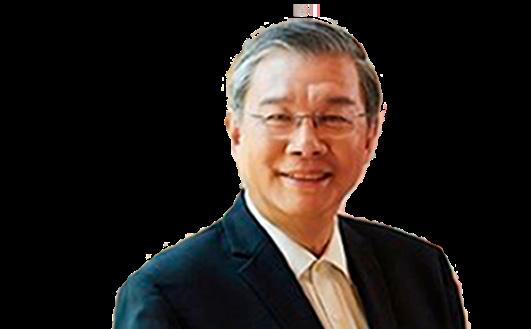
How do you ensure your workforce is future-ready today and primed to tackle the challenges of tomorrow?



HRM Asia’s CHRO Series, the leading in-person platform for key HR and business leaders to share insights, experiences, and ideas, is returning to South-East Asia in 2024.
And it is all kicking off at the Sheraton Saigon Hotel & Towers in Ho Chi Minh City on June 13, where the inaugural CHRO Vietnam 2024, jointly organised by HRM Asia and the Vietnam Human Resources Association (VNHR), will delve into key industry trends and discuss pertinent topics relating to evolving HR leadership, formulation of people and talent strategies, workforce reskilling, strategic deployment of innovative HR technologies, improving employee engagement and workplace experience, and more.
For instance, Tran Minh Huong, Country Head of HR, Vietnam, Standard Chartered Bank; Pham Lan Anh, CHRO, Generali Vietnam Life Insurance; and An Le, CHRO, VinaCapital, will be part of a panel discussion that examines how organisations can align technology imperatives and people strategies to scale business growth and efficiency.
To provide insights into how organisations can respond effectively to various workforce needs in a digital and globalised environment, Ann Vo, Managing Partner & Regional Director, Asia Pacific, Janus Executive Search & Talent Advisory, will lead a fireside chat that will offer key tips to create a holistic and people-centric talent management experience.
Joining Ann will be Alexis Pham, Chief People Officer, Home Credit Vietnam; and Phung Minh An, Group Head of Talent Management & Organisational Development, Techcombank.
Also joining CHRO Vietnam 2024 is Tam Thanh Nguyen, CHRO, Masan Group, who will discuss how HR leadership can be leveraged to steer organisational development and performance; while Ngo Thanh Phong, Country Sales Manager, Workforce Optimizer, will highlight how people management can be revolutionised with AI-powered workforce optimisation.
For CHROs in Vietnam looking for more ideas on how to foster a corporate culture of continuous learning, recognition, wellness and progress, Vu Ton, CHRO, Manulife Vietnam, will share how Manulife Vietnam is prioritising skills enhancement and mastery in the age of talent mobility and career growth.
With many organisations still trying to understand how environmental, social and governance (ESG) factors fit into their overall business strategy, Joanne Flinn’s session on embedding ESG goals in business governance and people strategies is not to be missed.
The Chairwoman of The ESG Institute will delve into topics such as the challenges and know-how to ESG governance and disclosure. She will also highlight the role HR can play in advancing ESG practices, and how organisations can adopt green taxonomy and establish a proper framework for ESG reporting.
CHRO Vietnam 2024 will also include an exciting panel discussion that focuses on evolving smart workplaces to spark employee empowerment and productive collaboration.
Moderated by Kim-Anh Le, President, Vietnam Human Resources Association; and Managing Director, Dynamic Consulting, and joined by speakers Thuy Anh Tran, Country HR Director, Vietnam, Cargill; Tran Thi Thu, HR Director,
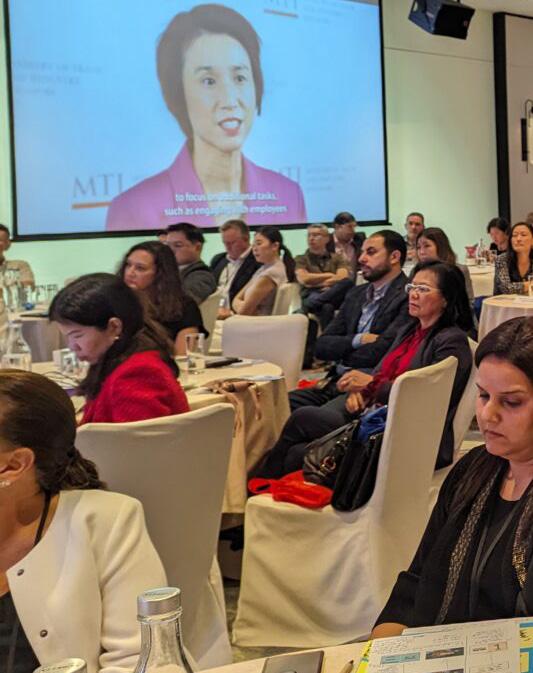
Nutreco International Vietnam; and Tracey Do, Director, Head of People, Shopee Vietnam, the panel discussion will explore topics such as the impact of transformation on workplace trends, work models and employee experience, among others.
To address the business and people challenges facing oganisations in Malaysia, the National Human Resource Policy Framework was launched this May to provide guidelines to implement human capital development programmes in Malaysia.
As organisations in Malaysia embark on a new transformative journey to strengthen welfare, enhance skills, and elevate the success of the workforce, CHRO Malaysia 2024, taking place on July 10 in Kuala Lumpur, will set the stage for CHROs in the country to come together to discuss key trends and develop strategies that will align their people with business goals to drive growth in 2024 and beyond.
With the theme of Aligning People with Business Strategy: Malaysia’s New HR Roadmap, CHRO Malaysia 2024 will take a deep dive into topics such as how investing in upskilling can be a strategic way to improve employees’ earning power and career advancement opportunities; how organisations in Malaysia can build

a sustainable and equitable workforce and how they can transcend employee wellbeing to create a work culture that prioritises employee happiness and fulfilment; and the impact of technologies
on Malaysia’s job market.
The focus on flexible work will then be in the spotlight when the CHRO Series moves to Singapore on September 18.
With Singapore announcing in April
guidelines on flexible work arrangements (FWAs), it has given organisations in Singapore plenty of food for thought as they design new strategies that will elevate productivity across their workforce, while focusing on the wellbeing of their employees.
With the theme of Beyond 9-to-5: Shaping an Inclusive Approach to Flexible Work, CHRO Singapore 2024 is providing a platform for CHROs in Singapore to discuss how organisations can create successful FWAs. More importantly, the event will provide more clarity for both employers and employees as Singapore searches for a fair an inclusive approach to make flexible work a success.
CHRO Series 2024 is also supported by leading organisations such as BIPO, Coursera, Hogan Assessments, Human Inc, Janus Executive Search & Talent Advisory, OC Tanner, Outsized, and Workforce Optimizer
Join these leading organisations and HRM Asia at CHRO Series 2024 and be part of the drive to reshape and empower HR and your organisation in 2024!


In the bustling corridors of the National University of Singapore (NUS), change was stirring. Amid the age-old traditions and esteemed academic pursuits, Anna Ng, HR Tech Lead at NUS HR Department, spearheaded a transformative journey set to redefine the university’s HR technology landscape.
As Ng reflected on the challenges of the old HR system, she recalled the cumbersome processes that once defined NUS’ HR operations. Thousands of transactions were handled manually each year, bogging down efficiency, and leaving room for error. Furthermore, the reliance on physical files and documents posed security risks and hindered service delivery.
“The traditional approach was no longer sustainable, and we knew we needed a change,” she told HRM Magazine Asia.
With a clear vision in mind, Ng set out to build a modern HR ecosystem that would empower both employees and HR professionals alike. The cornerstone of this transformation lies in a Cloud-based Human Resource System (CHRS) from SAP SuccessFactors that would revolutionise the way NUS approached HR management.
She explained, “CHRS provides a comprehensive suite of modules that support and automate all aspects of the employee lifecycle. Mobile-enabled ESS [Employee Self-Service] and MSS [Manager Self-Service] functions bring greater convenience and efficiency. We use SAP BTP [Business Technology Platform] to custom build new applications specifically tailored for NUS’ business needs, with full integration to CHRS.”
“To support our employees’ physical health and mental wellbeing needs, leading wellbeing applications like Intellect, BenefitsYou and Darwin are adopted and connected to CHRS.”
And extending CHRS further, the team strategically expanded CHRS’ capabilities by integrating third-party solutions like DocuSign for e-signatures, OpenText for document management, Cherwell for HR service request tracking, and AI-powered platforms like Impress.ai and JobTech were
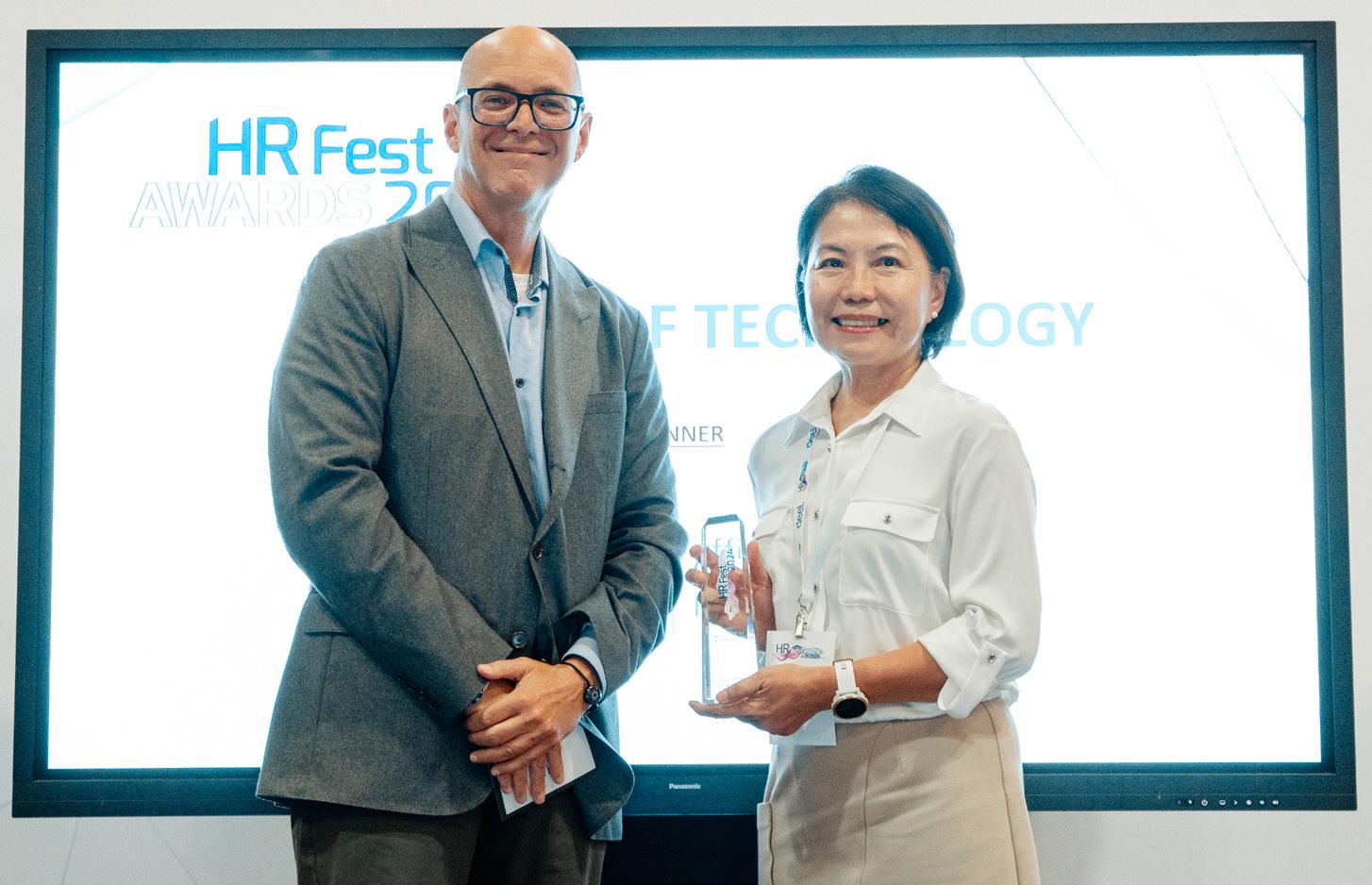
adopted for intelligent talent sourcing and skill gap identification.
As the new HR ecosystem took shape, Ng witnessed the transformative impact it had on NUS’ workforce. Empowered by self-service capabilities and mobile-enabled functionalities, employees gained greater control over their HR needs, managers have better purview of their team data to enable resource allocation, targeted coaching and staff development.
She elaborated, “CHRS eliminates the need for HR involvement in everyday data entry tasks. Employees can now update their personal data and contact details, report newborns, update their marital status, request leave online, and submit claims for expenses or medical bills – all through a secure and user-friendly system. Building upon this foundation of efficiency, the CHRS mobile app empowers employees with even greater flexibility. They can access the system and manage HR matters from anywhere, at any time, including watching an eLearning video on the go.”
The impact has been undeniable. Streamlined processes have boosted productivity, reduced workload for HR and employees, and eliminated maintenance costs associated with outdated systems.
But for Ng, the journey was far from over. In a moment of triumph. NUS was honoured with the Best Use of Technology award at HR Fest Awards 2024, recognising the university’s efforts in leveraging technology to transform HR practices.
She said, “Through this HR transformation, we prioritise empowering employees with greater control over their HR and career needs. This shift has fostered a stronger employee-HR partnership across the organisation, resulted in more effective employee management and development, better alignment with university goals, and a more positive work environment for all.”
“The recognition we received at HR Fest Awards 2024 for Best Use of Technology is a testament to our ongoing application of innovations, adoption of new technologies, and commitment to creating a superior HR experience for our valued employees.”
With her sights set on the future, Ng remains committed to leveraging technology to further enhance HR operations. From robotic process automation (RPA) to AI integration, she envisions a future where datadriven decision-making would drive organisational success and foster a culture of continuous improvement.
Your employees need a roadmap to make sure they're on the path to success. Workday gives you complete visibility over your team's evolving needs, and the power to curate the right support to help them thrive. Plus, easier communication with employees helps you provide personalized learning opportunities. That way, everyone gets where they need to be, on the path that's right for them.
Workday. The finance, HR, and planning system for a changing world.

UOB Thailand’s recent win at HR Fest Awards 2024 for Employer of Choice is a testament to its commitment to fostering a strong and inclusive work environment. This achievement goes beyond just attracting top talent; it reflects a deep understanding of how organisational culture directly impacts employee morale, retention, and ultimately, business success.
Following the acquisition of Citibank’s retail business in 2022, a central focus for UOB Thailand has been ensuring a smooth integration process. As Sasiwimol Arayawattanapong, Head of Human Resources at UOB Thailand, told HRM Magazine Asia, “A critical part of the transition plan has been making employees and customers feel that we are One UOB.”
“Internally, we have continued to emphasise One UOB through the UOB Way; inspiring by the same purpose (Building the future of ASEAN), practising similar core values (Honourable, Enterprising, United, Committed), and promising to treat each other well according to our people philosophy (Trust, Growth, Care).”
Sasiwimol highlighted that the UOB Way is a long-term mindset to strike the right balance between work and personal life, which guides the people programmes, policies, and initiatives the bank creates.
“With the holistic actions, we believe that we are and be able to remain our position as being number one in employee pride that in turn positively impacts our business performance and sustainability,” she added.
UOB Thailand recognises the importance of continuous learning and development for a thriving workforce. Sasiwimol shared the bank’s training programmes that cater to both soft and technical skills, with dedicated tracks for people managers (coaching, mentoring) and individual contributors (design thinking, growth mindset).
Recognising the evolving nature of the financial services industry, UOB Thailand also offers future-focused programmes in
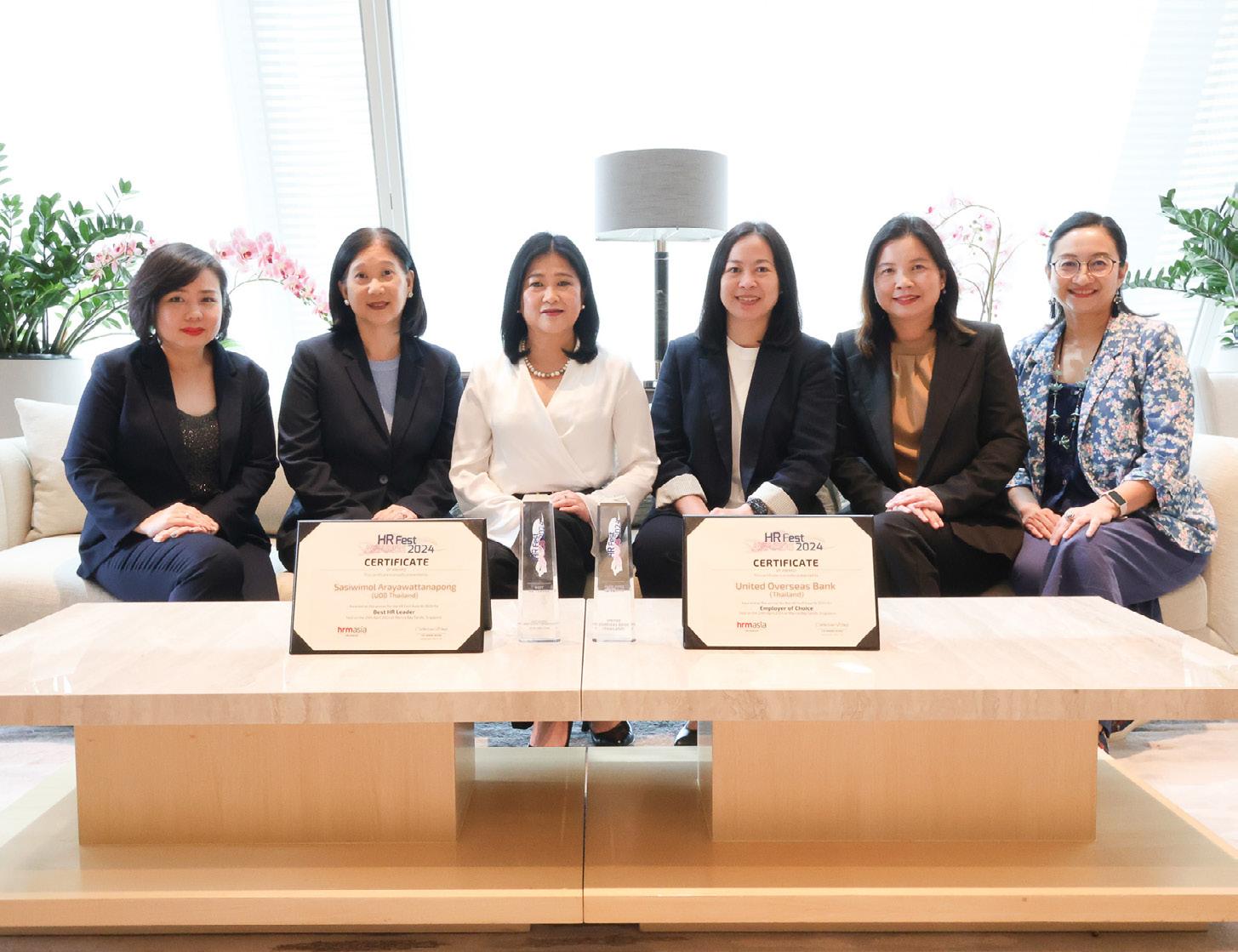
data analytics, AI, project management, and data storytelling. A separate Leadership Acceleration Programme allows highpotential employees to network across functions and explore career opportunities.
The effectiveness of these programmes is evident in employee feedback as Sasiwimol explained, “With the holistic development path, employees provided good feedback through our annual employee engagement survey. A total of 88% responded that the training programmes equipped them with the relevant skills required for their development, while 83% felt that there are excellent career opportunities at our bank.”
UOB Thailand is also a champion of diversity and inclusion. Their commitment to equal opportunity hiring is reflected in their workforce dynamics – women comprise a significant majority of their permanent employees (73%) and new hires (77%), and hold 70% of senior management positions reporting directly to the CEO. They actively partner with organisations like the Association for Professional
Development for the Blind in Thailand, creating employment opportunities for people with disabilities.
Beyond recruitment, UOB fosters an inclusive environment where everyone feels valued. Performance evaluations are based on objective criteria, and the Diversity of Generation training programme promotes understanding and collaboration across age groups. Organisational-wide policies like annual Code of Conduct refreshers ensure a respectful and professional workplace culture.
In addition to fostering diversity and inclusion, UOB Thailand prioritises employee wellbeing by providing access to a range of facilities and wellness initiatives. Employees have ample opportunities to unwind and recharge, from common gathering areas and fitness rooms to massage facilities and recreational spaces. By promoting a healthy work-life balance and offering amenities accessible to all, UOB Thailand demonstrates its commitment to creating a supportive and enriching work environment for its diverse workforce.
With WalkMe, this becomes your reality.
Get instant, in-context guidance your employees need and the insights you demand to make HR tech work for everyone - from hiring to onboarding, performance reviews to benefits enrollment, and beyond.
Streamline your workflows, boost employee satisfaction, and get actionable insights—all in one place.
Discover the transformative power of WalkMe in our Employee Promotion Challenge video.
Scan to see the experience you could be creating for your employees!




What does it mean to be a leader in the corporate space in 2024? It becomes imperative to discuss this question as more organisations rely on great leadership to steer them towards success, exemplify the journey of what it means to lead, and work with the board to make decisions for the collective good of the organisation’s workforce.
That is the firm belief of Paul Chong, Chief Executive Officer at Certis, who was named Best C-Suite Leader of The Year at HR Fest Awards 2024, which celebrated C-suite leaders who embrace and champion HR across all levels in their organisation.
“Winning the C-Suite Leader of the Year is an honour that deeply resonates with my personal and professional ethos,” said Chong, speaking to HRM Magazine Asia. “It signifies that the path we have carved at Certis, integrating technological advances with our human capital, is not only innovative but impactful.”
The organisation, which prides itself on integrating its technological advances with human capital, is often finding new ways
to mentor the next wave of C-suite leaders, and the win is a sign that the organisation is on the right track. This is something Chong knows a lot about, especially with regards to breeding and mentoring leaders within Certis. As the President and Group Chief Executive Officer of Certis, Chong joined Certis as its founding Chief Executive Officer in 2004 and has since led, pushed and helped cultivate Certis’ transformation from a statutory board of Singapore’s Ministry of Home Affairs to a privatised entity with a global presence.
“This award is for every individual at Certis who has contributed to our growth and success. It underscores our shared belief in the power of unity, perseverance, and innovation,” said Chong. It also pushes the organisation to set higher benchmarks, keep disrupting industry norms, and commit to being at the forefront of the security services sector.
To Chong, he believes that a C-suite leader must rework and reimagine HR to meet a future where HR plays a strategic role in driving business transformation. “HR at Certis has transcended traditional roles and now plays a pivotal role in shaping corporate policies, driving change, and spearheading innovation,” Chong
espoused. “This evolution reflects a broader change in the C-Suite community, where HR’s strategic input is critical to navigating the complexities of modern business landscapes.”
This redefined HR strategy amplifies the importance of consistently aligning human resource practices with business goals to foster a resilient, adaptable, and innovative corporate culture.
Chong believes that there is a need to emphasise the importance of adaptability, innovation, and cultivate a people-centric approach to leadership when it comes to C-suite leadership. “The leaders of tomorrow must be prepared to face an ecosystem that is perpetually changing, where technological advancements continuously reshape the business landscape,” explained Chong.
He also underscored the need for aspiring leaders to reflect and invest deeply in understanding the big changes that the corporate landscape inevitably will witness, and then cultivate a leadership style that is flexible, informed and compassionate. “Building resilient and adaptable teams, while remaining steadfast in one’s core values, will be essential for success in the dynamic years ahead,” he shared.
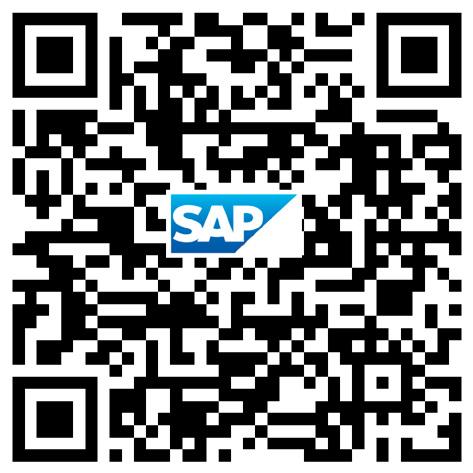


Much needs to be said about HR leaders who have helped to channel and push policies championing the workforce, as HR leaders often are working to reach goals and objectives set by leaders and the board of directors, which also act as mediators between the employer and employees. They also help champion causes, benefits, and needs on behalf of these employees. HR leadership is crucial for organisational growth, and it becomes imperative to champion great ones.
In recognition of outstanding HR leadership, HR Fest Awards 2024 presented Sasiwimol Arayawattanapong, Head of Human Resources, United Overseas Bank (Thailand), with the HR Leader of the Year award.
Speaking to HRM Magazine Asia, Sasiwimol attributed this accolade as a significant professional and personal milestone. “This award is not just about the achievement, but it is also a testament to the support and collaboration of the HR team and colleagues,” shared Sasiwimol. “It inspires me to continue pushing the boundaries in HR and to create more inclusive, effective, and employee-focused initiatives.” In all, Sasiwimol views the award as a reinforcement of her commitment to positively impacting the workforce and the whole organisation.
In Sasiwimol’s work and dedication at UOB Thailand since 2001, she has had a keen insight into the work and duty needed to be a part of the human resources team and understands what it means in 2024. Some of the key focus and trends that she believes the organisation should work on include investing in employee development and retention; prioritising mental health and wellbeing for employees within organisations; strategic workforce planning to upskill and reskill employees with future skill needs, succession planning; and streamlining the process of talent acquisition by utilising technology and other AI tools to enhance the employee
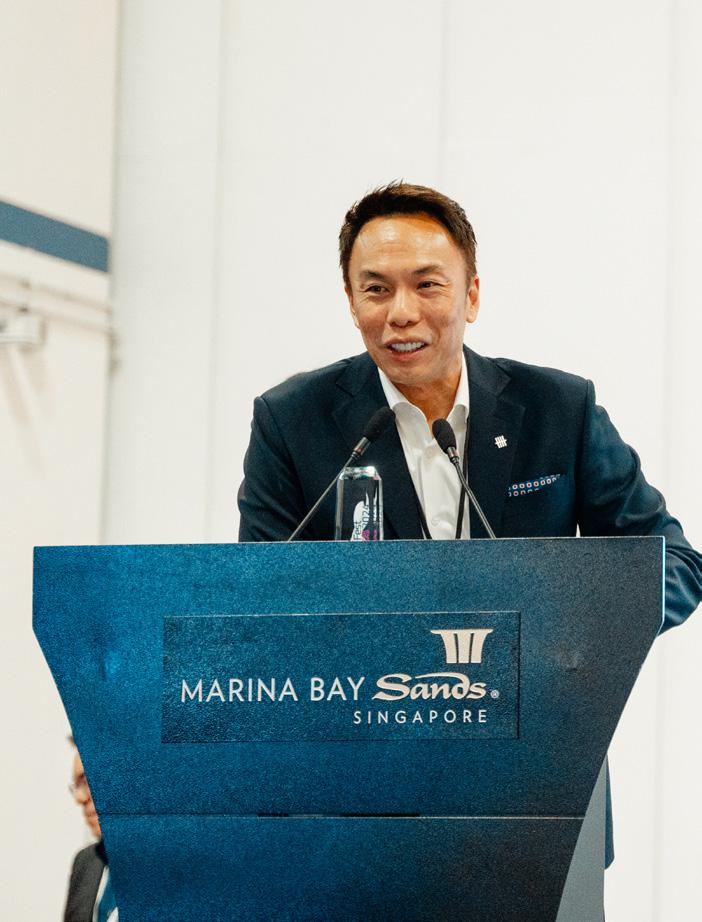

experience.
But how does Sasiwimol intend to train the next generation of employees, especially those who are planning to become leaders? To her, it starts with a thoughtful approach that seeks to balance wisdom and innovation through four different pillars. The first begins with fostering a learning environment.
Sasiwimol suggested that HR leaders mentor others by emphasising the importance of keeping up with the latest HR trends, technologies, and best practices and that it was important to encourage successors to develop an Individual Development Programme (IDP), or a tool to help employees develop their career and personal development by helping employees reach short and long-term career goals, as well as improve their current job performance. This is paramount, of course, on the rapport built between employees and managers, and involves continuous communication and feedback between both parties.
With that in mind, the communication that employees and managers should share includes experience, such as the personal experiences of managers to be used as teaching tools. The important
bit, she espouses, involves sharing both successes and failures to provide a realistic view. “We regularly convene meetings with direct reports to discuss company updates, challenges, and successes,” she explained. “These meetings are designed to encourage open dialogue and feedback.” Additionally, team leaders are instructed to further share these stories with their respective teams, ensuring a cascade of transparent communication throughout the organisation.
Sasiwimol also encouraged leaders and employees to network and build a professional network by encouraging them to participate in HR-related events, as connections can provide diverse perspectives and opportunities for collaboration, as well as prepare these employees to lead through change, with the help of change management.
“The key advice is to remain flexible and proactive,” shared Sasiwimol. She encouraged employees to see challenges as opportunities for growth and innovation and to emphasise the core of HR to always be people-focused, maintaining a balance between technology and human-centricity to succeed.
AI-driven tech that connects talent to opportunity. Used by 60% of the Fortune 100.
70 Million
Video Interviews & Assessments
200 million Candidate Chat Engagements
90% Candidate Satisfaction
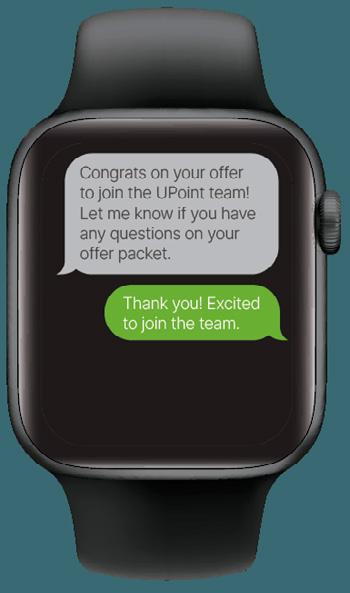

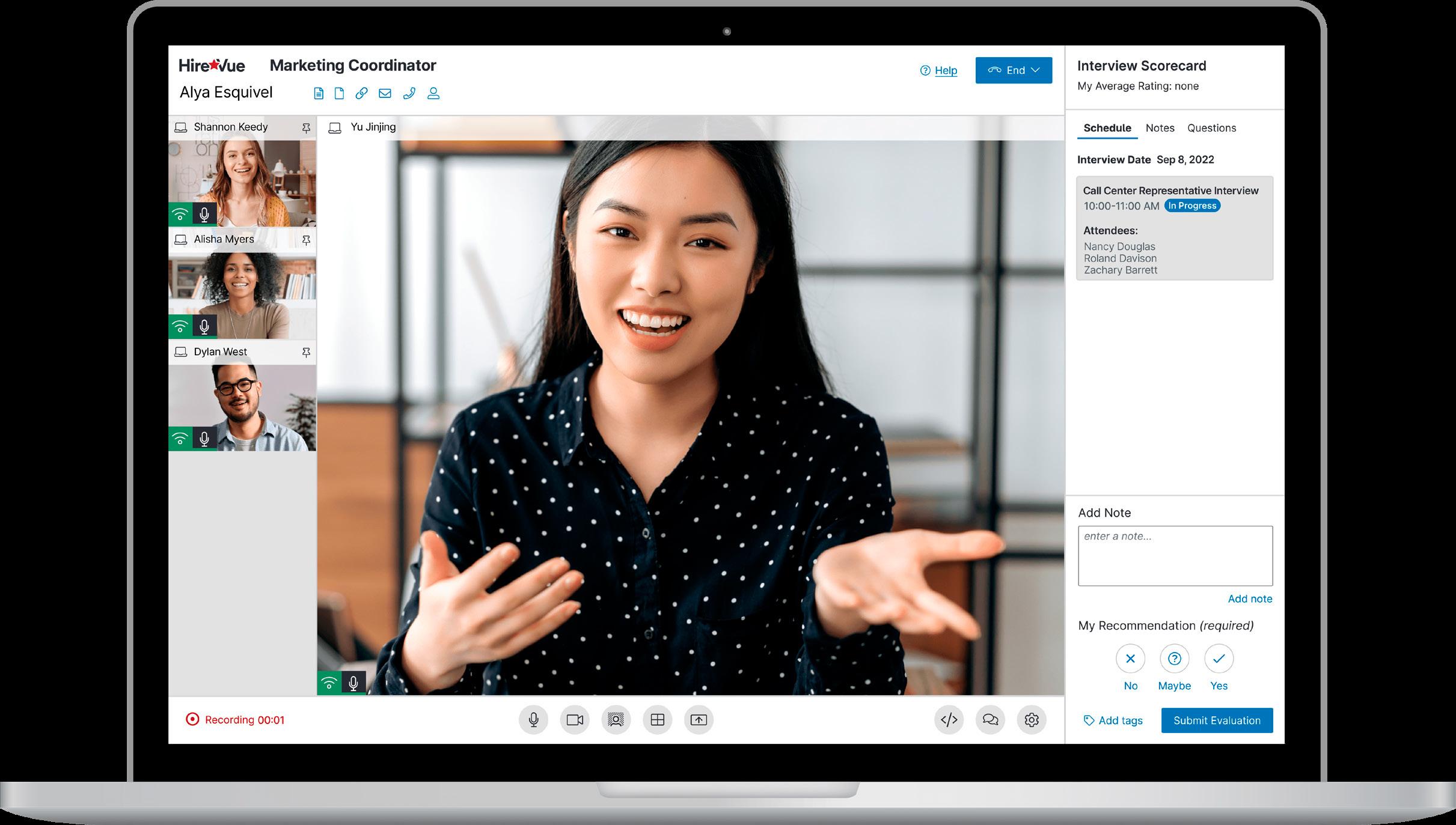
The future of assessing, hiring and retaining talent is Human Potential Intelligence. Learn more here.

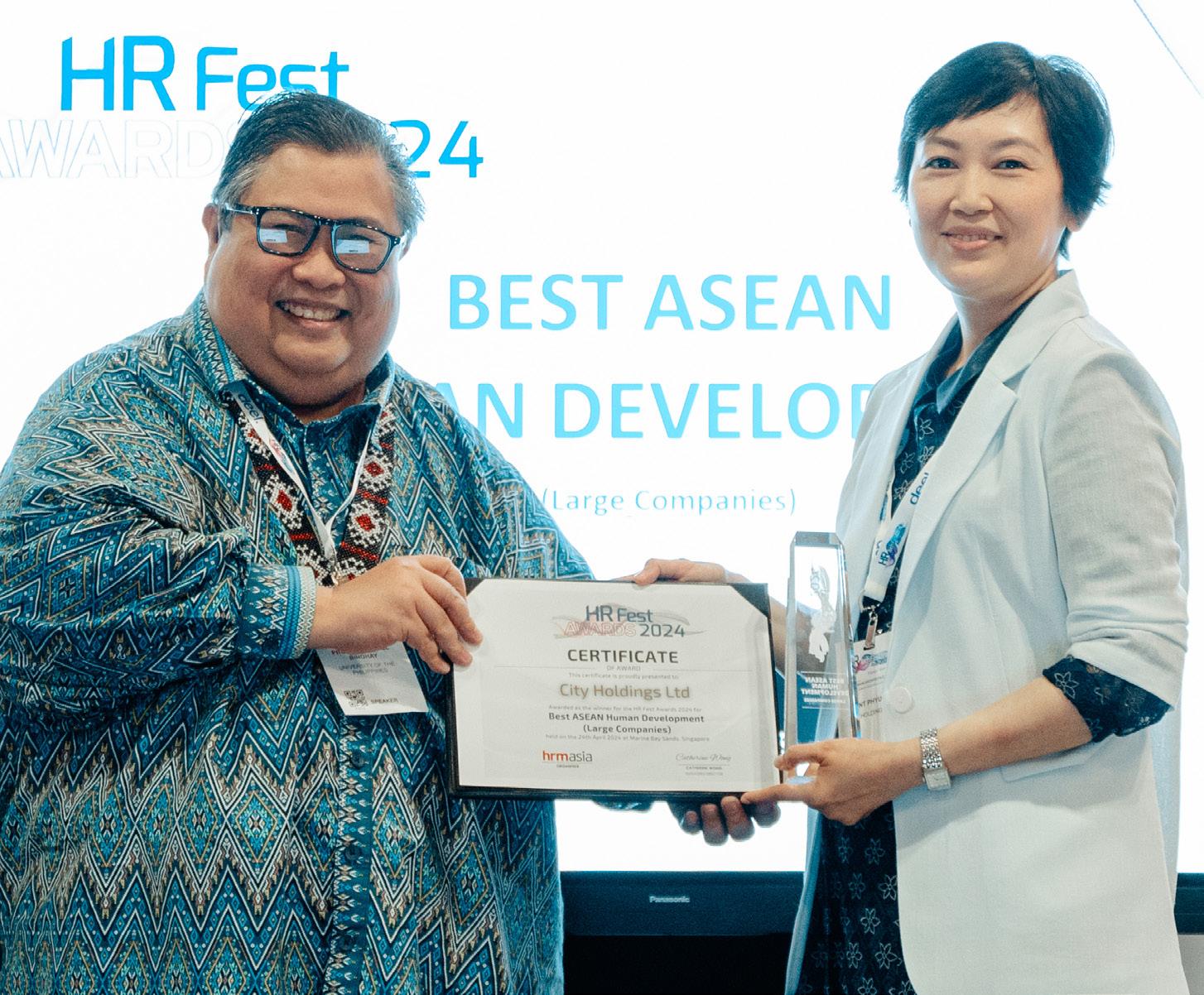
The award for Best ASEAN Human Development (Large Companies) was awarded to City Holdings, an organisation based in Myanmar. Consisting of six business units in Myanmar, City Holdings primarily focuses on retail, distribution, and food and beverage industries.
“Our journey has been marked by challenges, from establishing the Group Company structure in 2019 to navigating the obstacles posed by the Covid pandemic and economic downturn in Myanmar,” shared Pwint Phyu Han, Group Chief People Officer, City Holdings, while speaking to HRM Magazine Asia. “Despite these limitations, we remain steadfast in our commitment to empowering our employees to better serve our customers.”
Receiving the accolade by a prestigious organisation across ASEAN validates the efforts and work made by City Holdings as a whole and has filled Han with a profound sense of pride.
City Holdings’ core people strategy revolves around fostering a platform for employee career growth, thus cultivating a high-performance culture within the organisation. With 11,000 employees that they see as family, much of their human development strategy involves shifting the organisation’s perspective from seeing employees as human capital to recognising them as individuals with their own aspirations and life challenges.
“We place emphasis on conducting performance discussions that highlight both employee performance and development, establishing a clear link

between individual objectives, team KPIs, and organisational strategy,” shared Han. “Our business strategy is collaboratively set with line managers and leaders, ensuring that strategic initiatives are effectively communicated throughout the organisation.”
The team’s capability development is centred around the City Learning Institute, which utilises various learning modalities to impart knowledge and skills. This is done by heavily leveraging digital platforms to reach a broader employee audience, facilitating capability development, knowledge enhancement, and engagement.
Feedback between employees and managers is open thanks to the organisation providing My Voice surveys, provided biannually; as well as the direct access to CEOs to provide opinions via the City Family application. Employees who perform well and contribute a lot are duly rewarded with financial remuneration and development so that their efforts are fully recognised, and they recognise the wellbeing of employees by providing substantial support for both physical and mental health.
So, what steps can large organisations such as City Holdings take to bring human development into their organisations and how can they raise opportunities to upskill and push their employees to succeed? For Han, it does not start with an adherence to a specific theoretical model. “We began developing our human development policies with a mindset and intent that resonates with our organisation’s purpose: ‘to create value for our communities through our core values of innovation, integrity, excellence, and social responsibility,’” she shared. These strategies include listening to the needs of the employees, while also understanding the external challenges they face.
“This insight guides our strategic directions, enabling us to better support our employees in serving our customers. The key is swiftly launching initiatives that address the challenges and needs our employees encounter,” said Han.
Other strategies include securing buyin from key stakeholders to push human development strategies, as the priority of sharing a synergistic mindset via core leaders significantly influences the success of these initiatives.

Human development in the realm of South-East Asia is focused on investment in the human workforce to build a sustainable, peoplecentric approach that focuses on a fair and inclusive development of employees and stakeholders, and rewarding organisations that are aligned with this objective.
This is the goal of the ASEAN Human Development Organisation (AHDO) Summit, which has, along with HR Tech Festival Asia 2024, developed an award to be given to any organisation that has pushed for fair and inclusive development of employees and stakeholders in at least two ASEAN countries. The award, known as Best ASEAN Human Development, pays particular attention to how an organisation’s leadership incorporates factors such as learning, wellness, inclusion and a defined clear voice in how work is done.
This year, the award has been split into two subcategories, which recognise the award recipients via type of organisation. As such, the award for Best ASEAN Human Development (Small & Medium Companies) was awarded to Similie, an organisation that strives to develop affordable and innovative tech for all organisations, regardless of the country they are based in.
To Ana Paula da Costa Xavier, General Manager, Similie, winning the Best ASEAN Human Development (Small & Medium Companies) Award at HR Fest Awards 2024 is a tremendous honour for Similie. Speaking to HRM Magazine Asia, Xavier calls the award a true vindication of the organisation’s core philosophy that people are at the heart of successful projects. “Since Similie’s inception, we have championed the idea that a people-centric approach is key. By focusing on fair and inclusive development for our employees and stakeholders, and by investing in their growth, we empower them to deliver incredible results,” she said.
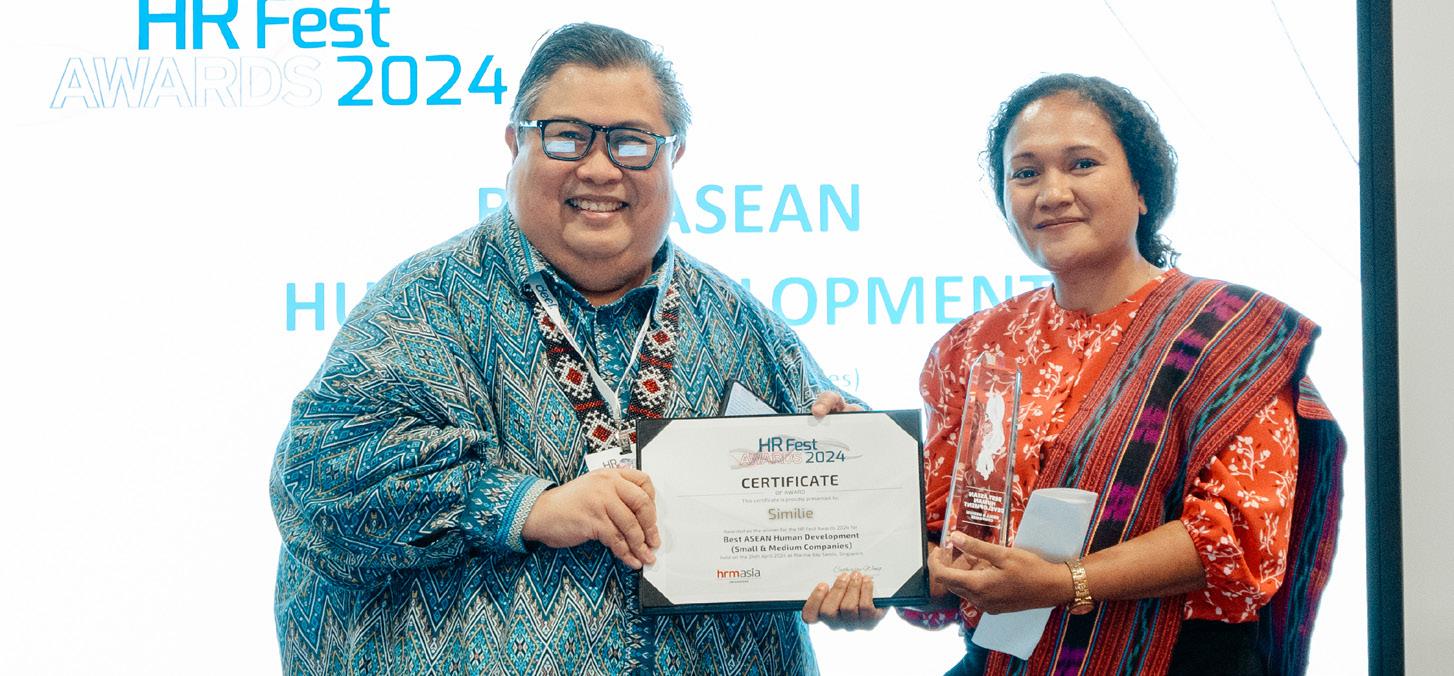
How does an organisation like Similie work to employ human development opportunities on a day-to-day basis? It starts with a conscious effort to move beyond the traditional perception of what an organisation does. Similie works to create a safe space where employees feel comfortable taking risks and learning from their mistakes so that they can gain valuable learning experiences that lead to growth, as well as share new ideas.
Similie also offers regular training and development programmes for their employees to build on their skills, knowledge and capabilities. “We have a leadership development programme that helps our emerging leaders develop the skills they need to become effective managers and leaders,” shared Xavier.
“We also provide technical training programmes to help our engineers and developers stay up-to-date with the latest technologies and trends in our industry.” Other aspects that the organisation works to offer employees also include flexible work arrangements, benefits that help with physical, emotional, and mental health, diversity, equity and inclusivity initiatives; and partnerships to establish and create positive social impact within their local communities.
Xavier’s advice to other organisations when it comes to human development includes understanding the differences and needs of the different organisations, especially as organisations boost different employees with various skillsets.
Next, Xavier recommended organisations create a clear vision and strategy for their objectives that are aligned with the overall business goals and values of the organisation, as well as establish a culture that boosts and encourages learning and growth to enable employee upskilling and success, recognising and rewarding employees who demonstrate a commitment to their growth and development. She also recommended that organisations offer good infrastructure that can offer employees good benefits and flexible working arrangements.
“What has worked well for Similie has been to build our teams to meet their maximum potential,” said Xavier. “We are guided by the skills and experience of our team members, and delegating responsibilities to them to build their leadership and decision-making abilities. This builds trust and respect across the organisation and helps it operate as a team. It is also important to identify ways to incentivise great performance.”
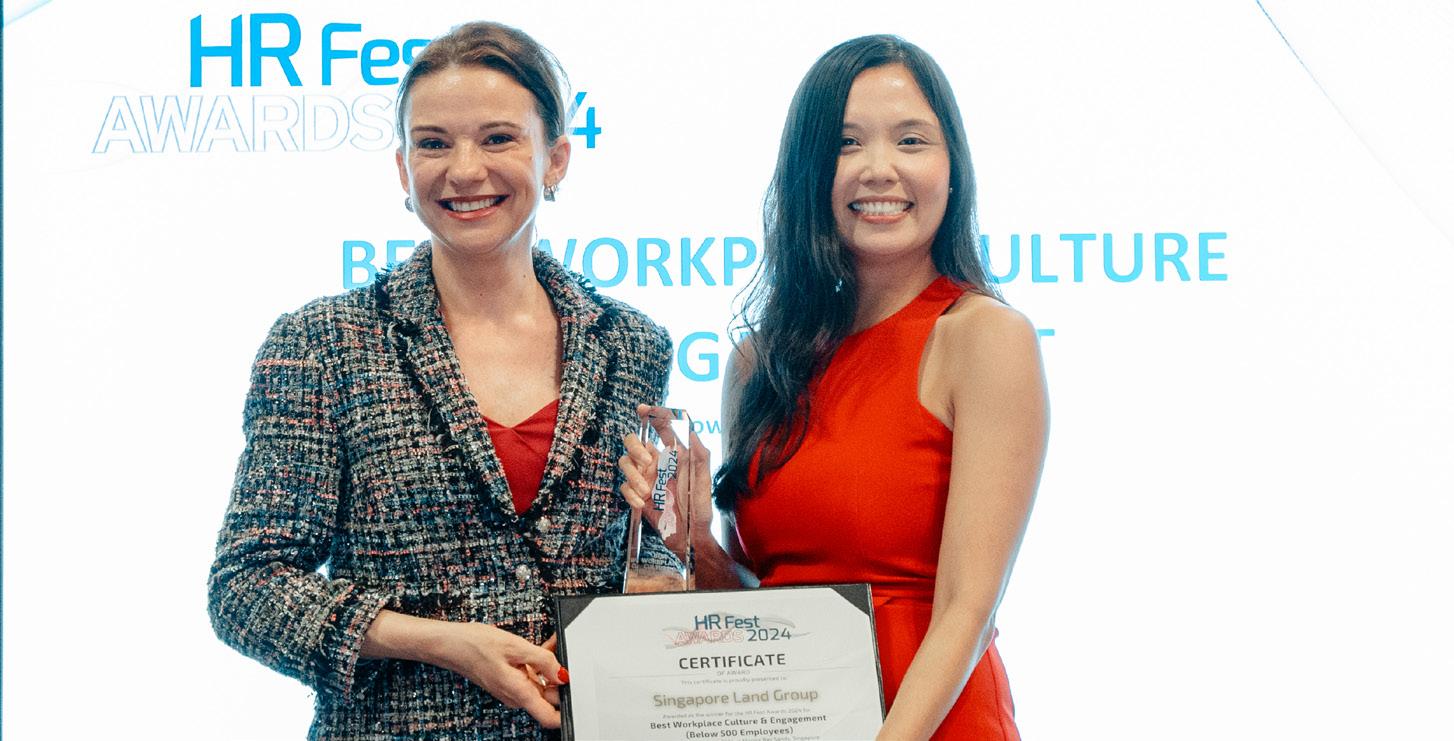
Shining a spotlight on the organisation’s dedication to fostering a work environment where employees feel valued, motivated, and empowered to excel, Singapore Land Group (SingLand) was presented with the Best Workplace Culture & Engagement (below 500 employees) award at the recent HR Fest Awards 2024.
Winning the award is a significant achievement, especially in today’s competitive talent market, acknowledged Welch Er, Head of HR at SingLand. “We believe such awards can also pique the interest of candidates who may not be actively looking for a job but are open to opportunities.”
SingLand plans to leverage this recognition to solidify their position as an employer of choice, attracting top talent seeking a nurturing work environment. More importantly, the award reinforces SingLand’s commitment to its existing employees.
“The award is not only a great morale booster for the organisation but also highlights that the organisation is headed in the right direction when it comes to
creating a top-notch work environment. We believe this can go a long way in fostering a sense of pride and loyalty among our employees and help us retain top talent,” Er told HRM Magazine Asia.
Care, inclusivity, and empowerment are the cornerstones of SingLand’s corporate culture, and these values are more than just words. They are translated into tangible actions that shape the day-to-day operations and employee experience.
The Singapore-headquartered real estate organisation places a high priority on employee wellbeing. To support this commitment, SingLand has developed a comprehensive wellness programme and HR policies that address various aspects of wellbeing, including physical, mental, social, and financial health.
For example, SingLand organises regular initiatives such as fruit distribution, annual health screenings, care packages, informative financial literacy talks, wellness webinars, and group exercise classes. Moreover, as part of its broader wellness strategy, SingLand designates every September as SingLand Health and Wellness Month. During this month-long initiative, employees are encouraged to

focus on their health, and healthy lifestyles and routines are promoted throughout the organisation.
She added, “Importantly, human connection is vital in caring for our employees and our leaders take an active approach to listening to employee concerns and feedback.”
Diversity and inclusion are also woven into the fabric of SingLand’s recruitment and hiring practices and policies which are designed to build a diverse workforce and foster inclusion in the workplace. These, according to Er, range from policies that strictly prohibit discrimination throughout the various aspects of SingLand’s business operations, to activities that celebrate different cultures and appreciate those from various backgrounds.
She continued, “On the topic of empowerment, we believe in the potential of each employee and are invested in their training and development. As we support our employees’ learning journeys, we are enabling and empowering them to grow professionally and with the organisation.”
SingLand’s employee engagement initiatives are anchored by the WISE framework – Wellness, Inspire, Socialise, and Energise. This framework directly contributes to creating a positive work environment where people feel inspired, motivated, cared for and appreciated, Er said. Together, these four pillars provide a relatable and meaningful way of contextualising employee engagement offerings to SingLand’s employees.
She said, “As we plan our activities around the WISE pillars, we are able to create employee experiences that are wellrounded and aligned with the organisation’s emphasis on people and the environment, teamwork, adaptability, and lifelong learning.”
For instance, Er cited volunteer programmes that benefit the community and the environment reflect SingLand’s emphasis on “People and Planet”. Similarly, employee engagement initiatives that are curated with collaboration in mind and often have a social element to them underscore the organisation’s value of “We, not I”.
“By embedding care, inclusivity, and empowerment into the fabric of SingLand, we can build a culture where employees feel valued, respected, and motivated to contribute their best,” Er concluded.

Imagine a workplace where every employee feels not just valued, but cherished. This is not just a utopian dream; it is the reality at Vena Energy, a Singapore-headquartered power producer and renewable energy developer recently recognised with the HR Fest Awards 2024’s Best Workplace Culture & Engagement (above 500 employees) honour.
Their secret weapon? A holistic welfare and engagement programme called V-Evolution that goes beyond traditional perks and instead prioritises nurturing every aspect of an employee’s life.
Speaking with HRM Magazine Asia, Anna Ho, CHRO of Vena Energy, said, “Most of our employees believe that our unwavering commitment to nurturing every aspect of our employees’ lives resonates most with the judges of HR Fest Awards 2024. Just like it resonates with most of them personally.”
“Through V-Evolution, we transcend the mundane to embrace the extraordinary, catering to the diverse needs of our workforce.”
V-Evolution encompasses three pillars of support—#MeCare, #MeHealth, and #MeTime—and this commitment is evident in the everyday experiences of Vena Energy’s employees. Under the banner of #MeTime, birthday leave and sabbaticals are readily available, dismantling the notion that work-life balance is a distant ideal. Flexible work arrangements are a cornerstone of the organisation’s culture, empowering employees to navigate their professional and personal commitments.
But Vena Energy understands that wellbeing extends far beyond the number of hours spent at the office. Their #MeHealth pillar champions a holistic approach to physical and mental wellness. Fertility support, mindfulness apps, and even subsidised activities ensure employees have the tools and resources to thrive.
“Yet, perhaps the most profound aspect of our culture lies in #MeCare,” Anna continued. “At Vena Energy, compassion knows no bounds. We extend our concern beyond the individual to encompass

the community at large. Volunteer leave empowers our employees to make a difference, while inclusive family care supports not just partners and children, but extended family members and even beloved pets.”
Vena Energy’s dedication to equity is also evident in their Women’s Empowerment programme, as she explained, “Our Women Empowerment programme encourages our team to envision possibilities, break free from cultural norms, and believe in their potential for personal and professional growth, fostering greatness together.”
Another standout tradition the organisation holds annually is Vena Day, a dedicated day when all employees are encouraged to step away from work and spend quality time with their families. Describing Vena Day as “more than just a day off”, Anna explained that this deliberate break is a celebration of the bonds that unite everyone, both within and outside of the workplace.
She elaborated, “By encouraging them to prioritise their personal lives, we send a powerful message: you matter, not just as an employee, but as a human being with dreams, passions, and loved ones who deserve your time and attention.”
“The impact of Vena Day reverberates far beyond the confines of our offices.
It’s not just about boosting morale or productivity; it’s about fostering a culture of trust, respect, and empathy. When our employees feel seen, heard, and appreciated, they become more than just colleagues; they become champions of our shared vision, driving us forward with passion and purpose.”
There is more to employee involvement at Vena Energy than just talking about it; they actively practice it. Specifically, brainstorming committees and the Vena Stars peer-recognition programmes are testaments to this commitment, as Anna added, “From the vibrant brainstorming sessions of the Funenergy and Care Committee to the collaborative buzz of our open-concept offices, transparency and inclusivity are more than just ideals; they’re our way of life.”
Vena Energy measures the effectiveness of its initiatives through surveys and data analysis. This ensures their programmes stay relevant and continue to resonate with the workforce. “So, when you ask how Vena Energy involves employees in shaping our engagement programmes and measures their effectiveness, the answer is simple: with unwavering dedication, genuine collaboration, and a commitment to continuous improvement. Because when our employees thrive, we all shine brighter together,” Anna concluded.
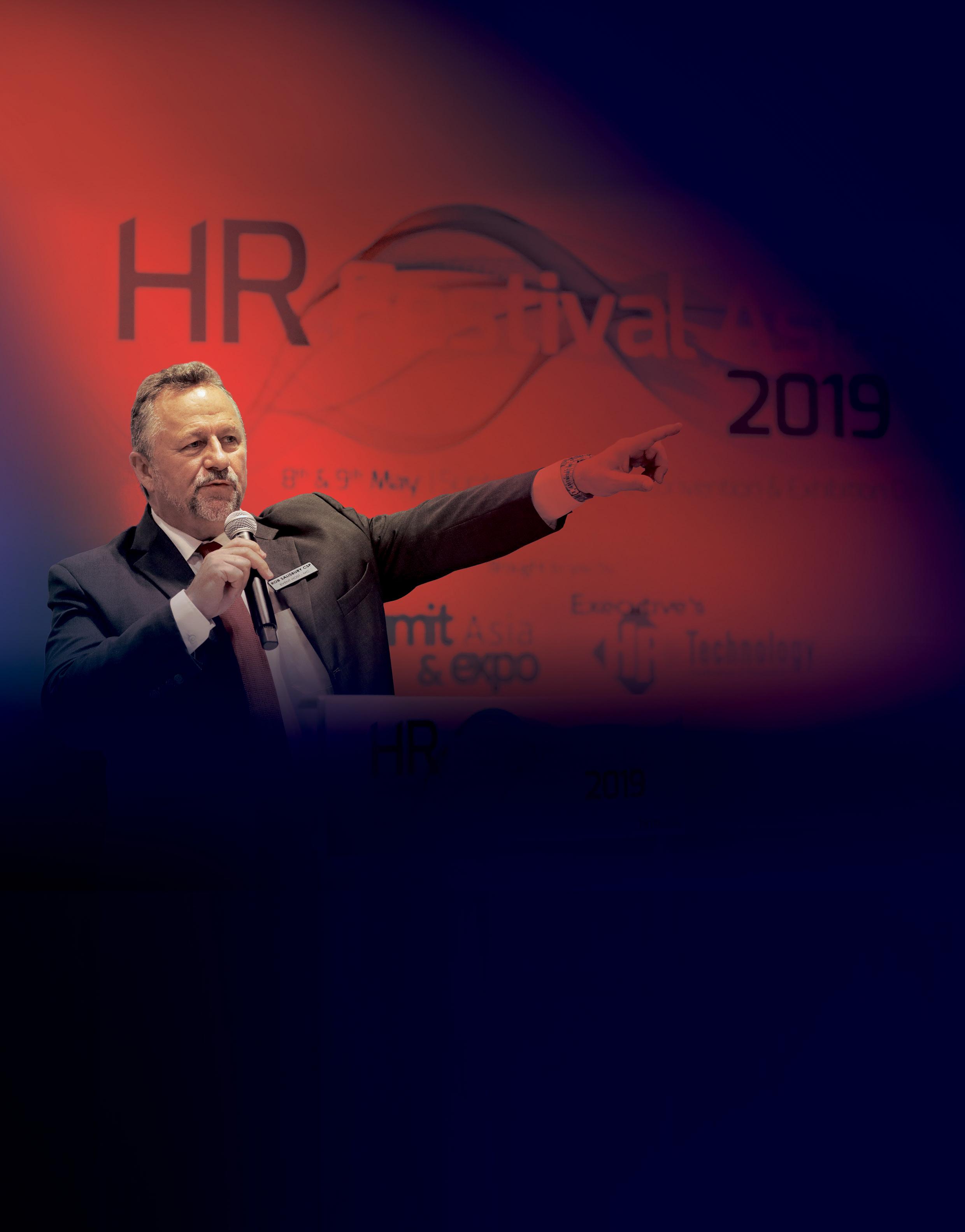
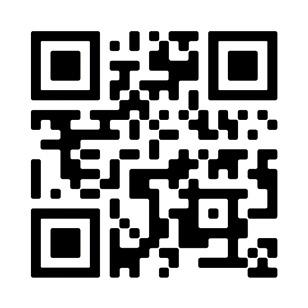

The quote, “When you hand good people possibility, they do great things”, perfectly exemplifies the importance of building strong teams. Choosing the right individuals, fostering collaboration, and nurturing leadership potential create a force capable of tackling any challenge.
HR teams play a vital role in making this a reality. They act as the bridge between employees and management, ensuring employee needs are heard and protected. Recognising and celebrating exceptional HR teams across industries becomes even more crucial in this context
During HR Fest Awards 2024, the prestigious accolade of HR Team of the Year was bestowed upon Singapore Land Group (SingLand). “The award holds immense significance both for SingLand and our HR team,” said Welch Er, Head of Human Resources at SingLand.
Speaking to HRM Magazine Asia, Er called the win a recognition of the organisation’s commitment to fostering a positive work culture, supporting employee growth, and driving organisational success through effective HR strategies. “This award validates our efforts in creating an environment where our employees can thrive. It also energises our team to continue pushing boundaries, innovating HR practices, and championing a culture of growth, inclusivity, and excellence,” she said.
Er identified traits such as the ability to adapt to rapidly changing workplace dynamics as something imperative for great HR teams to have in 2024, as well as HR teams prioritising employee wellbeing, diversity, equity, and inclusion initiatives. SingLand also looks to utilise and leverage digital technology to streamline processes, all while still maintaining a human touch.
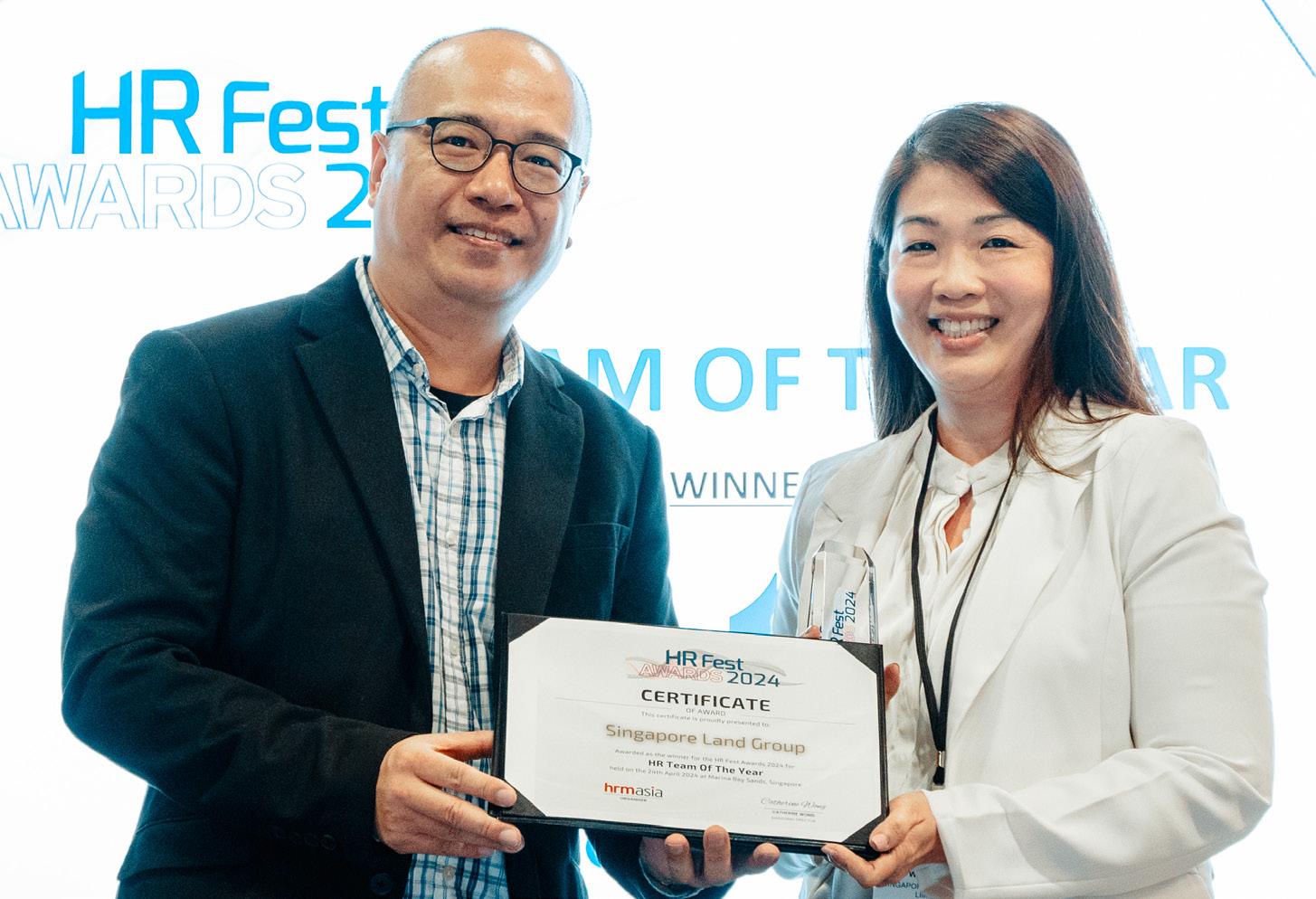
What that looks like at SingLand involves listening to employee feedback, promoting a culture of continuous learning and implementing innovative programmes that support work-life balance and career growth opportunities. All these, as Er explained, are on equal footing as the traditional core HR functions like recruitment, training, performance management, and employee relations which HR has long espoused.
So how does SingLand work to succeed? To hear Er explain it, it starts with developing core values, routines, and habits for the HR teams to go through every day. SingLand’s HR group does this by having regular team meetings, and one-on-one check-ins and adopting processes and platforms to make it easy for employees to reach out with questions or concerns. This is to establish clear channels of communication that are crucial for HR teams to function
effectively. The group also leverages collaboration tools and technology to make communication more efficient.
Yet, Er also pointed out that communication was not just about relaying information. “[Good communication] requires active listening, asking the right questions, and communicating clearly with empathy,” she said. “We recognise that these are skills that can be honed and provide training to continually improve our team’s communication skills.” This means that when honed alongside technological tools, efficiency can be achieved without losing a compassionate, human touch.
This is all done in a culture of transparency, one which Er reinforced is important in any organisation. “By sharing relevant information openly and honestly, we can help build trust and ensure that everyone is on the same page regarding organisational policies, procedures and expectations,” she concluded.


At SGTech, we are on a mission to create a workplace where everyone feels valued, respected, and empowered to do their best. As the world shifts towards emphasising Diversity, Equity, and Inclusion (DE&I), we are asking ourselves: How do we make these principles more than just words and truly integrate them into our everyday work life?
In my role as the Executive Director for SGTech, I strongly believe that leadership sets the tone for inclusivity. At SGTech, we are a diverse bunch, coming from different backgrounds, experiences, and skill sets, all united by our shared vision.
We are committed to continuous learning and transformation, emphasising the importance of thinking differently, keeping an open mind, and being receptive to emerging trends locally and globally. Inclusion is integral to our organisation’s ethos as we build our Secretariat and tech community.
Innovation lies at the heart of the tech industry.
From breakthrough software solutions to cutting-edge hardware advancements, innovation drives growth and competitiveness. However, true innovation thrives in environments where diverse perspectives converge. When individuals from different backgrounds, cultures, and experiences collaborate, they bring a rich variety of ideas to the table.
Implementing DE&I initiatives ensure that tech companies harness the full spectrum of human creativity and ingenuity. By fostering diverse teams, organisations can tackle complex challenges with fresh perspectives, leading to more innovative products and services. This culture of innovation not only sustains the company’s competitive edge but also propels it towards future growth and success.
Attracting and retaining top talent is a perennial challenge for tech companies. In an industry characterised by fierce competition for skilled professionals, DE&I initiatives can serve as a powerful magnet for talent. Prospective employees are increasingly drawn to companies that prioritise diversity, equity, and inclusion.
SGTech is dedicated to enabling anyone who wishes to join the tech workforce, irrespective of their current qualifications, skill sets, gender, culture, ethnicity, or age. This commitment also extends to our team at SGTech, ensuring that we embody the inclusive values we advocate for.
Drawing from experience, achieving inclusion requires a multifaceted approach. In fact, we suggest pushing for skill-based hiring, where individuals are evaluated based on their competencies rather than traditional qualifications. This approach promotes diversity and ensures that the workforce is equipped with the necessary skills for the job.
Additionally, cultivating an attitude of lifelong learning within the organisation is crucial. This involves encouraging employees to continuously develop their skills and knowledge, fostering a culture where learning is valued and supported at all levels. These efforts can help create a more inclusive and dynamic work environment where individuals are empowered to reach their full potential.
To inspire inclusion within SGTech, we have implemented several key strategies.
We have a clear organisational structure and unbiased HR hiring policies to ensure fair hiring practices. This includes defining roles and responsibilities to support hiring based on the right skills. We want to continuously foster a culture of learning and development, which we achieve through year-long programmes that encourage and reward upskilling and reskilling, enabling skills exchange, training, and talent development within

teams and across the organisation.
At SGTech, we keep our finger on the pulse of evolving workplace dynamics and always aim to walk the talk. Currently, our permanent hybrid working model fosters a more flexible and adaptable work environment and significantly facilitates the seamless transition for mothers returning to full-time employment, thereby promoting inclusivity and flexibility within our workforce.
We recognised the importance of flexible work arrangements even ahead of the most recent tripartite guidelines, where Singapore will mandate all employers to establish a process for employees to request flexible work arrangements. The guidelines aim to address Singapore’s tight labour market and ageing workforce, facilitating the continued employment of caregivers and seniors who wish to remain in the workforce.
In addition, we also work on maintaining a workforce that spans a wide range of ages, from fresh graduates to individuals in their post-50s, and welcome interns from Institutes of Higher Learning. We recognise and value the skills and experience that each of our colleagues brings to the table, fostering an environment where everyone feels valued and included.
Our goal is to build a lifelong learning and growth culture where every individual feels valued, respected, and empowered to contribute their best.
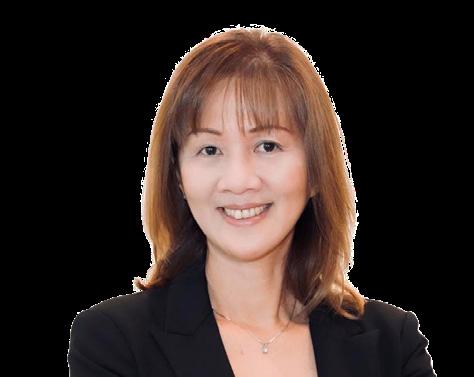
When it comes to diversity, few regions in the world can rival Asia. A mosaic of hundreds of ethnic groups and sub-cultures, the region is home to a population of 4.7 billion people who speak more than 2,300 languages.
For HR leaders with remits in this dynamic region, diversity, equity, inclusion, and belonging (DEI&B) is not simply a good-to-have; it is an imperative for the entire organisation.
At ADM, our business spans the entire food and agriculture value chain, from the origination of crops to the processing and creation of value-added ingredients. Our teams engage with a diverse range of partners at every step of the journey, from field to product. This underscores the importance of fostering a workplace environment that embraces individuals with unique perspectives, enriching our ability to innovate and adapt in an everevolving landscape.
While discussing the importance of DEI&B is easy, bringing it to life can be challenging. We believe even small actions can make a big difference in debunking long-standing stereotypes.
Last year, we put this belief into practice by hosting female students at our Biopolis research hub in Singapore. In collaboration with Inspiring Girls Singapore, a non-profit dedicated to empowering young girls, we provided students with the opportunity to interact with female members from our Creation, Design and Development team, delving into their careers and engaging in flavour creation activities. Above all, they departed with a clearer understanding that exciting careers in science, technology, engineering, and mathematics (STEM) are accessible to individuals of all genders.
Many organisations typically engage with talents at the tertiary level with the intent of hiring them. However, we believe it is also important to consider how we, as professionals, can provide exposure and mentorship during their earlier, formative years.

Although gender tends to dominate DEI&B discussions and is pivotal for fostering an inclusive workplace, it is only one lens – we must also consider the other aspects of what makes a workplace diverse.
Working effectively as a team requires that we invest in understanding the region’s diverse cultural practices and sensitives. This is one of the reasons why we decided to incorporate opportunities for regional rotation into our Asia-Pacific finance and commercial trainee programmes.
As part of our structured programme, many of our trainees are given the opportunity to spend time working from a different office in the region, allowing them to immerse themselves in different cultures and ways of working. Supported by mentors in each market, these periods of immersion are immensely helpful in pushing them out of their comfort zones and expanding their cultural horizons.
In our commitment to empowering young professionals to reach their full potential at ADM, we plan to introduce the Young Professionals Network in AsiaPacific, building on successful rollouts in other regions. Participants can connect with like-minded peers and leaders across markets through this dynamic and inclusive community, providing them with valuable insights and new cultural perspectives.
A final observation is that building a
diverse workforce is easier when you begin with a diverse set of building blocks. That is why diversity is a key consideration for us when it comes to early career hiring.
In recent years, our engagement efforts in Vietnam have expanded to cover multiple leading universities and extended beyond traditional campus visits. We have organised facility tours, hosted entrepreneurial and research competitions, and provided scholarships to underprivileged students. Through these initiatives, we aim to nurture talent and support the next generation of leaders in the region’s food and agriculture sectors.
As we navigate the intricate tapestry of Asia’s diversity, it is important to remember that the journey towards true inclusion and belonging begins with taking that initial step. Whether it is challenging stereotypes or fostering cross-cultural understanding, each action we take contributes to a workplace where every voice is heard, and every individual thrives.
About the Author
Somnuek Ngamtrakulchol is HR Director, AsiaPacific, for ADM.
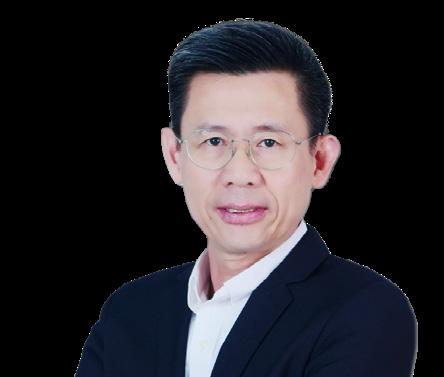
What does it mean to have proper DE&I processes within the workplace for LGBTQIA + employees? Leong Yangfa from Oogachaga, a non-profit organisation for the LGBTIQ+ community, shares some insights on how HR teams can do better in 2024.
Create a safe environment Inclusive and equitable policies
Engage and collaborate with LGBTQIA+ communities

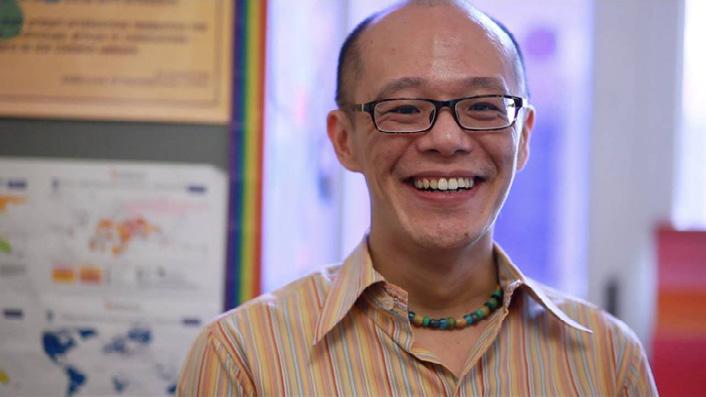
“It's often to the advantage of HR leaders and their teams to proactively engage with various employee communities, including LGBTQ+ employees & allies, as part of developing, reviewing and implementing policies that would impact them & their families.”
Leong Yangfa, Executive Director, Oogachaga, and registered social worker (he/him)
Standing shoulder to shoulder with minority or underrepresented groups. Learn to be allies for those unlike you in the workplace.
Creating an environment where employees feel safe enough to be themselves, bring their whole selves to work, and contribute more productively at the workplace
Factors based on gender identity, sexual orientation, race, age, social class, disability, or other characteristics - that "intersect" to create unique effects that others may not be aware of.
ADVOCATES: to ensure policies and practices are more fair and equitable for every employee.
INCLUSIVITY: knowing who and how to include people in conversations and business decisions that are about them
ENGAGEMENT: with various employee communities to develop, review, and implement effective policies
ENGAGEMENT: with various employee communities to develop, review and implement policies that would impact them and their families





2024 focuses on how L&D can be the driver of organisational transformation through capability development, creation of values-based culture, talent attraction and management as well as employee motivation and engagement through over 13 content-packed conference sessions.
https://www.learningtechnologiesasia.com.sg/

Imagine the Avengers Initiative. Each hero, unique in their powers and background, contributes to the strength and success of the team. Iron Man, no matter how powerful, cannot replicate the victory achieved by the combined force of all the Avengers in defeating Thanos. This analogy perfectly captures the essence of a truly diverse and inclusive workplace.
Diversity has become a buzzword in the boardroom. Organisations scramble to boast a rainbow of faces on their brochures, a mere box ticked on the path to success. Yet, genuine inclusion – a leader that ensures each voice is heard and valued – remains elusive in many organisations.
The cost of this performance approach is high. Untapped potential festers beneath the surface, diverse perspectives go unheard, and innovation stagnates. Imagine Spider-Man, confined to being just a teenage high-school student, yearning to showcase his web-slinging abilities and burgeoning scientific mind.
BY JOSEPHINE TAN
contributions, leading to tangible gains in productivity and revenue per employee.

The key to unlocking the true power of diversity lies in cultivating an environment of inclusion. This requires a leader who fosters psychological safety, a space where employees feel comfortable sharing their ideas without fear of criticism. Unconscious bias training empowers leaders and employees to recognise their own biases, ensuring a level playing field for talent. Mentorship and sponsorship programmes become nurturing grounds where diverse voices are amplified and empowered.
Beyond ethical imperatives, the benefits of genuine diversity, equity, and inclusion (DE&I) initiatives are substantial. Diverse teams breed innovation, generating a mosaic of tactics that drive groundbreaking solutions. Likewise, employee engagement thrives in environments where individuals feel valued for their
While some may express scepticism about DE&I initiatives, a study by the Institute for Corporate Productivity (i4cp) in partnership with Human Resource Executive paints a different picture. Analysing data from over 850 respondents, the study found that 75% of respondents from larger organisations reported progress on stated DE&I goals in the past 18 months. This commitment appears to stem from strong leadership buyin, clear goals, and the integration of DE&I into everyday business practices. Furthermore, it also found that over a third of respondents plan to increase internal communication on DE&I efforts and focus on attracting and developing underrepresented talent. This trend highlights a continued commitment to building a diverse and inclusive workforce.
Closer to Asia, another study by Jobs_that_makesense Asia and Manpower highlights the role DE&I plays in fostering a sense of meaning and purpose at work. Specifically, it found that 72% of respondents in South-East Asia consider advocacy for DE&I initiatives a crucial factor in creating a meaningful workplace. A truly inclusive environment ensures everyone feels valued and empowered to contribute, fostering a sense of belonging and ultimately, greater fulfilment.
In essence, building a culture of DE&I transcends mere checkbox exercises. It is about creating a team of success where every voice is valued, every perspective contributes, and the collective whole achieves remarkable feats. By moving beyond performance actions and embracing the power of genuine inclusion, organisations can assemble a future where diversity is not just celebrated – it is essential to thriving. Let the power of diversity and inclusion resonate, guiding organisations towards a harmonious and prosperous workplace.
